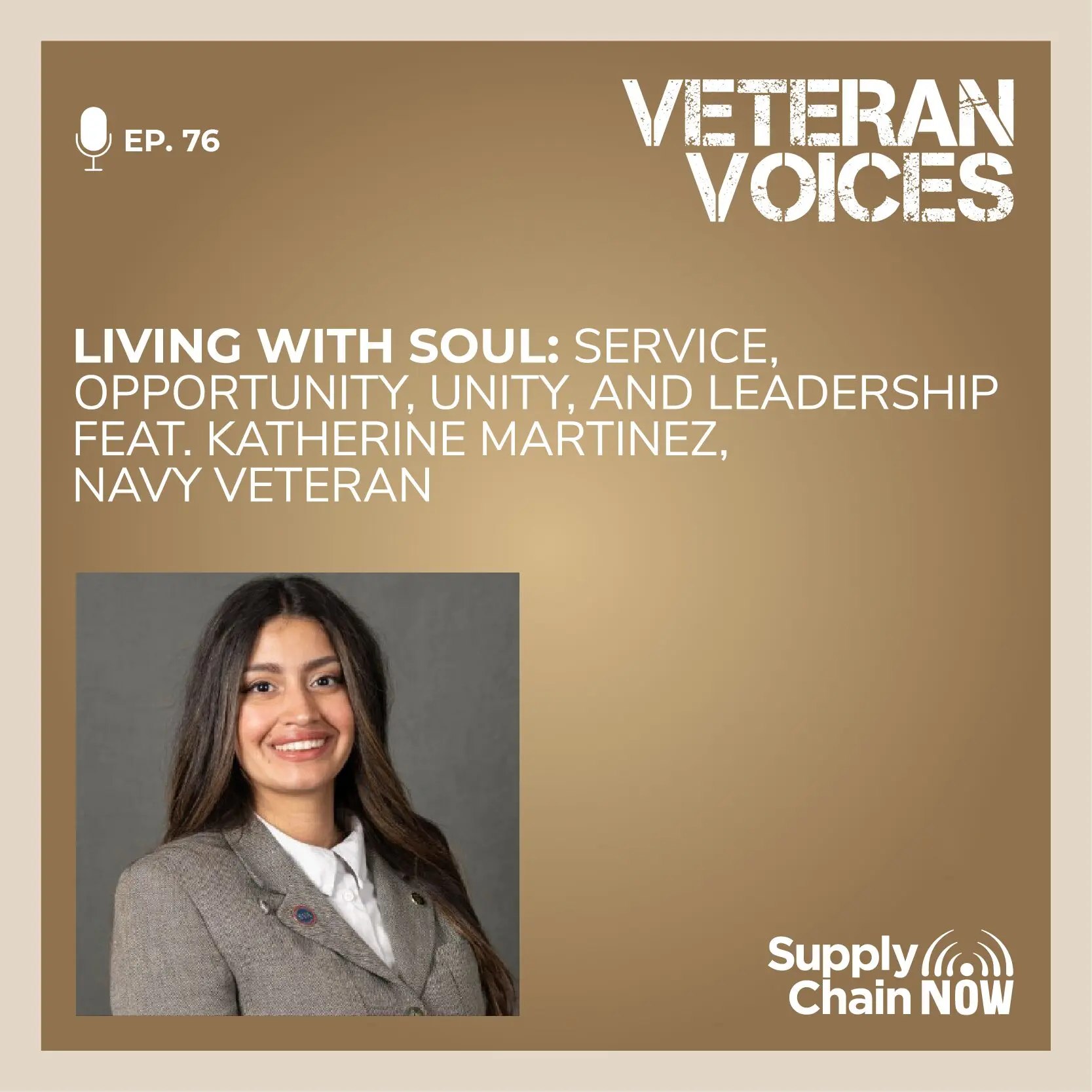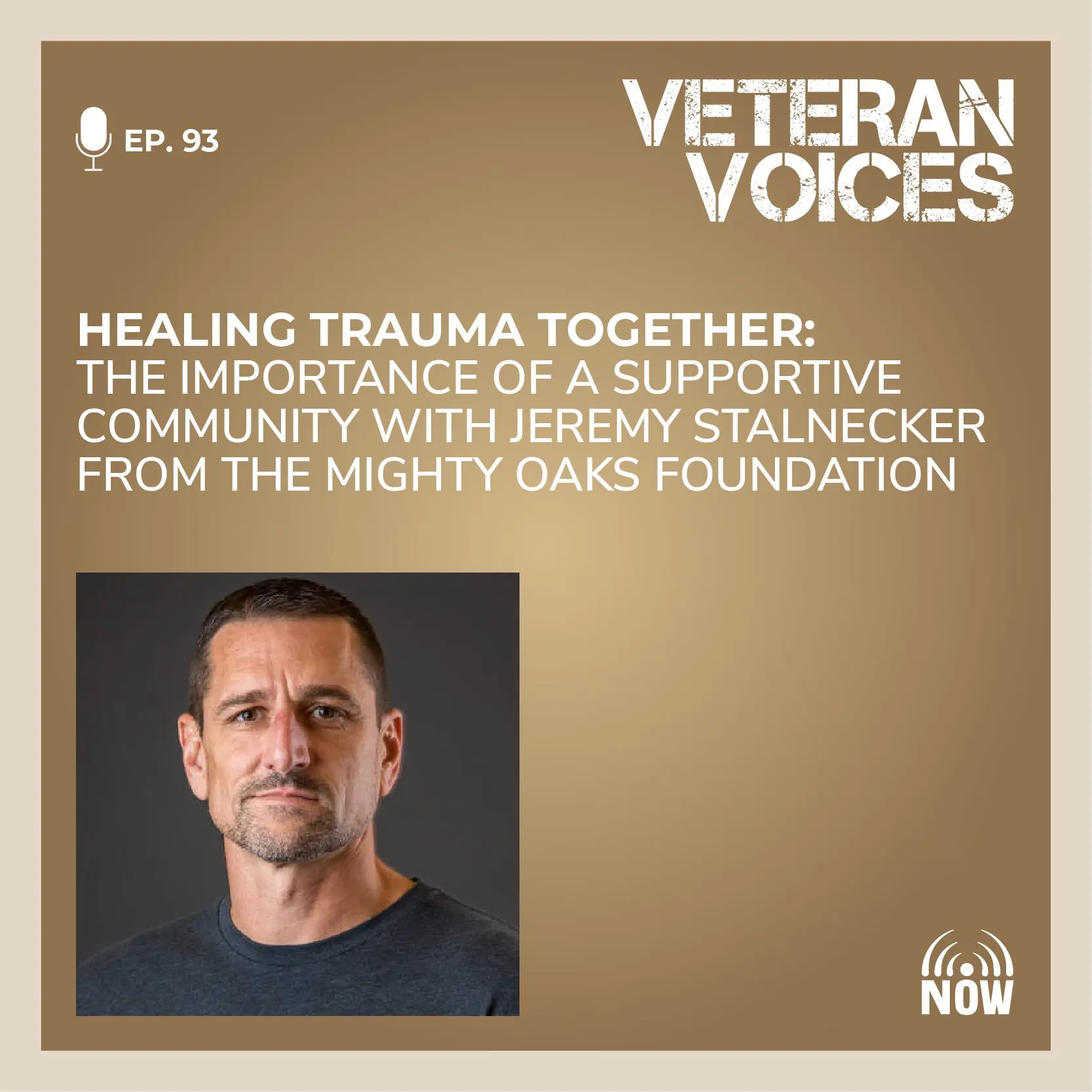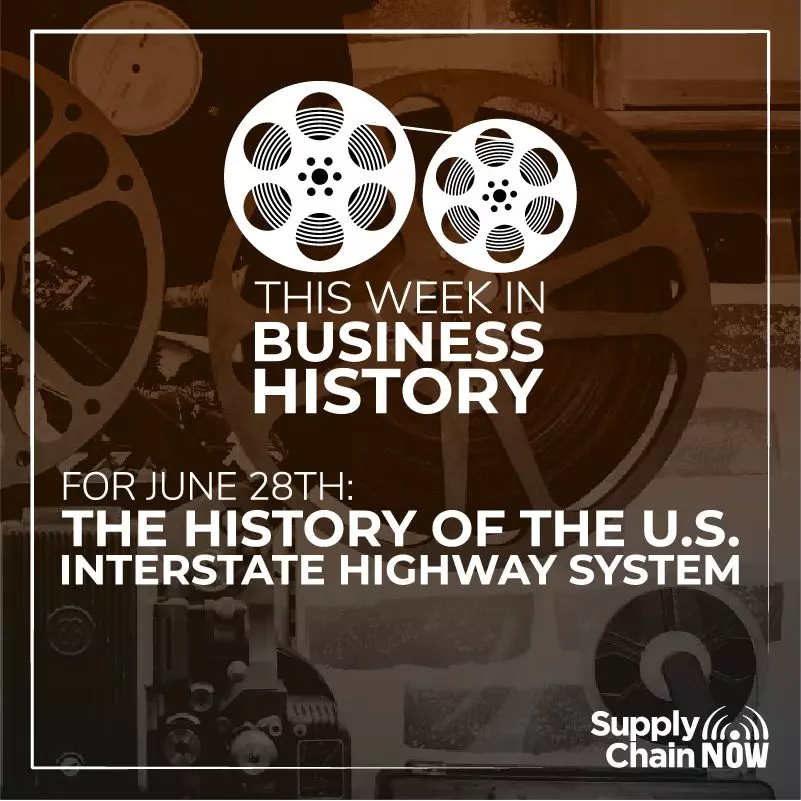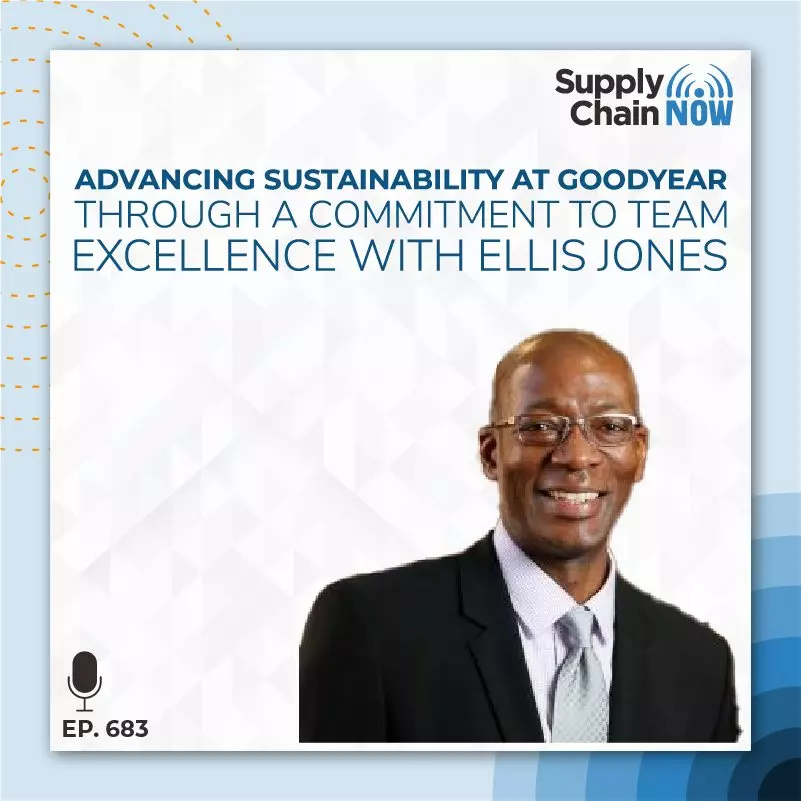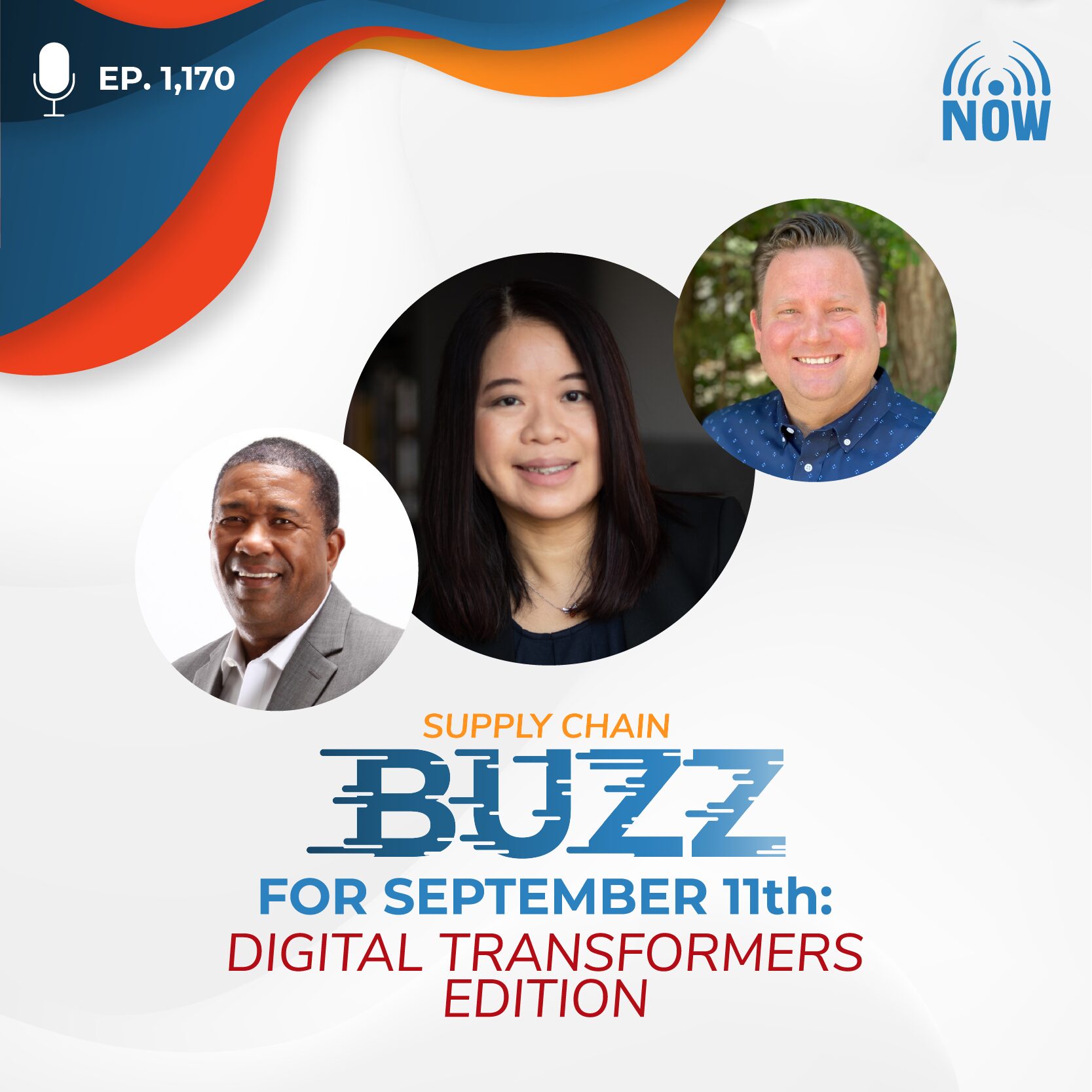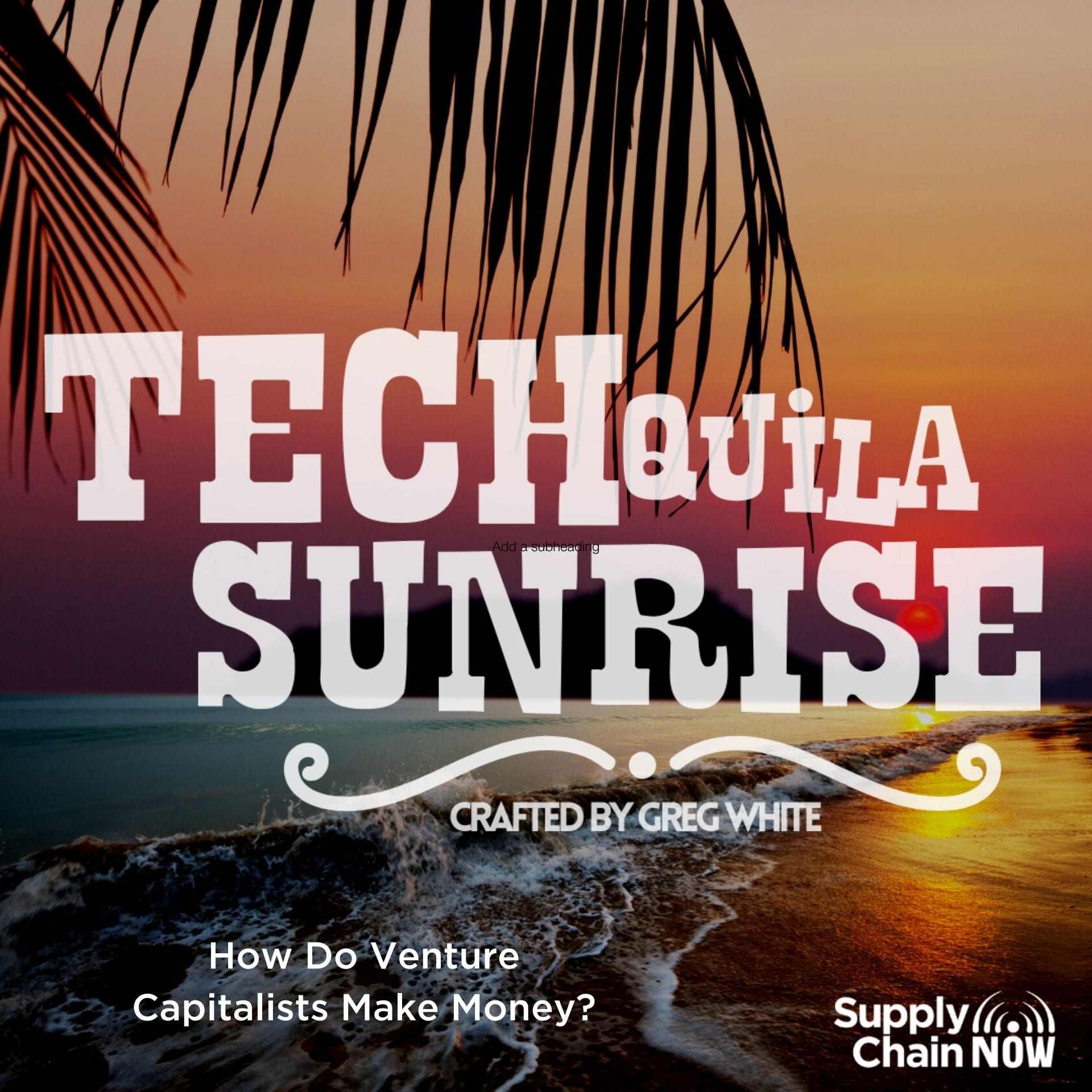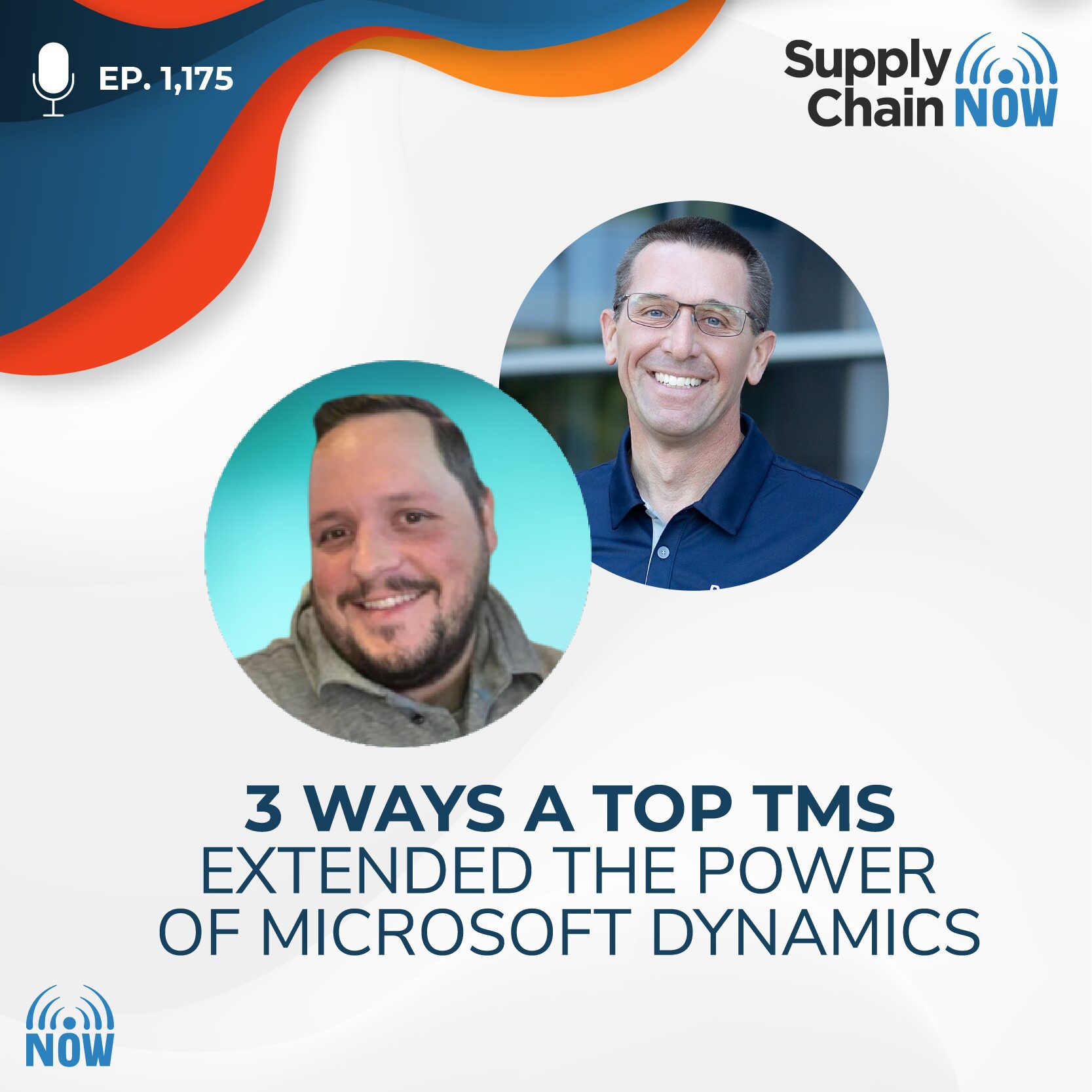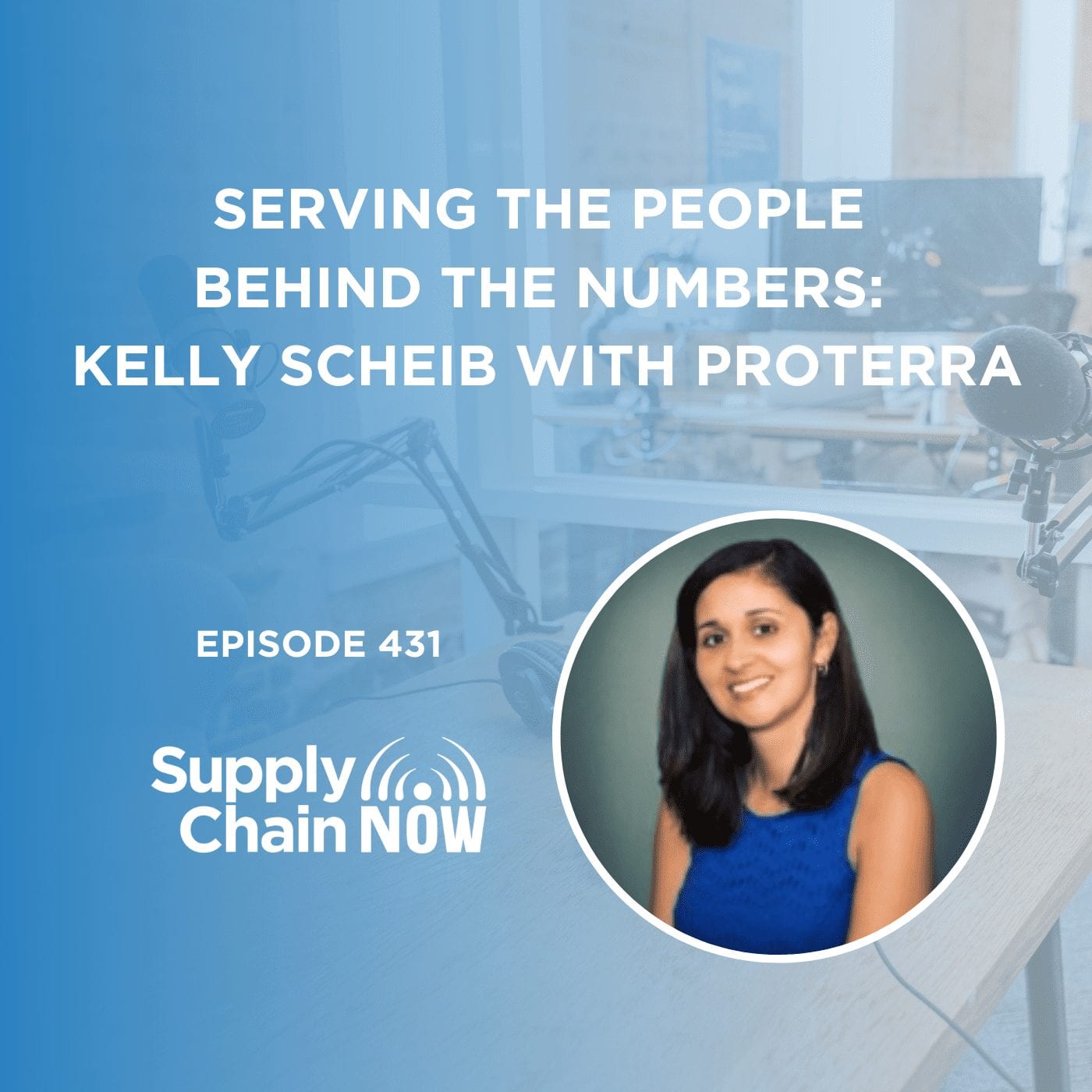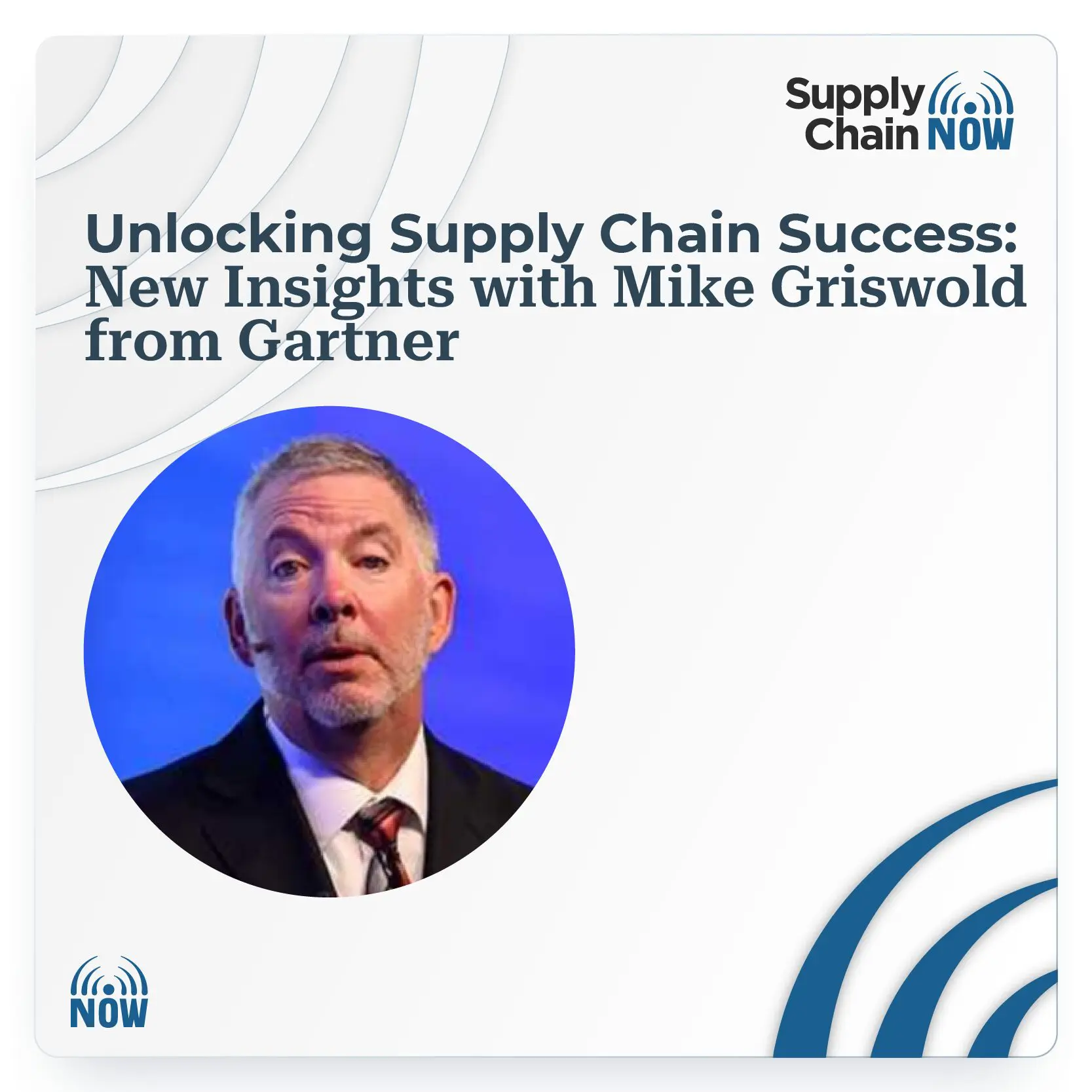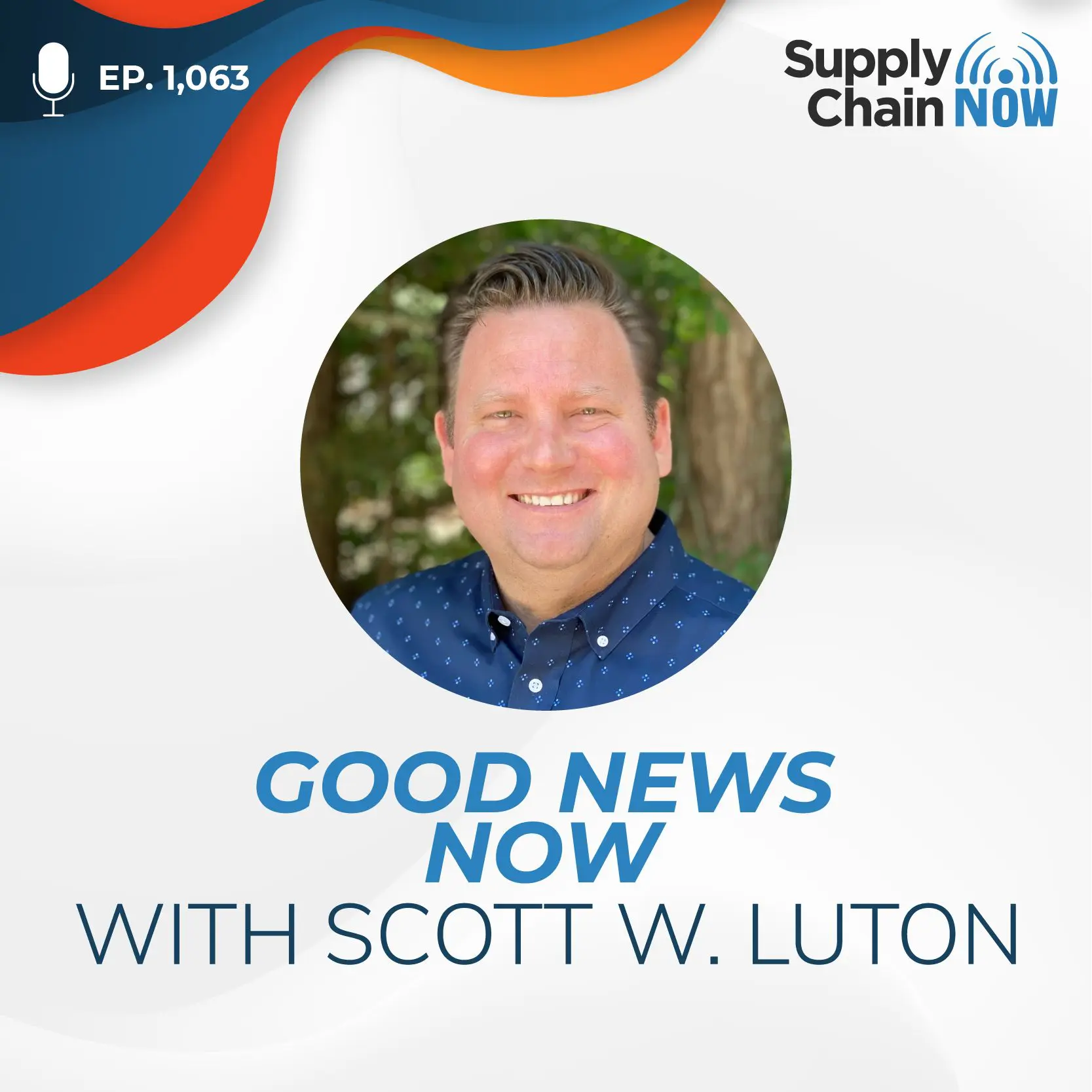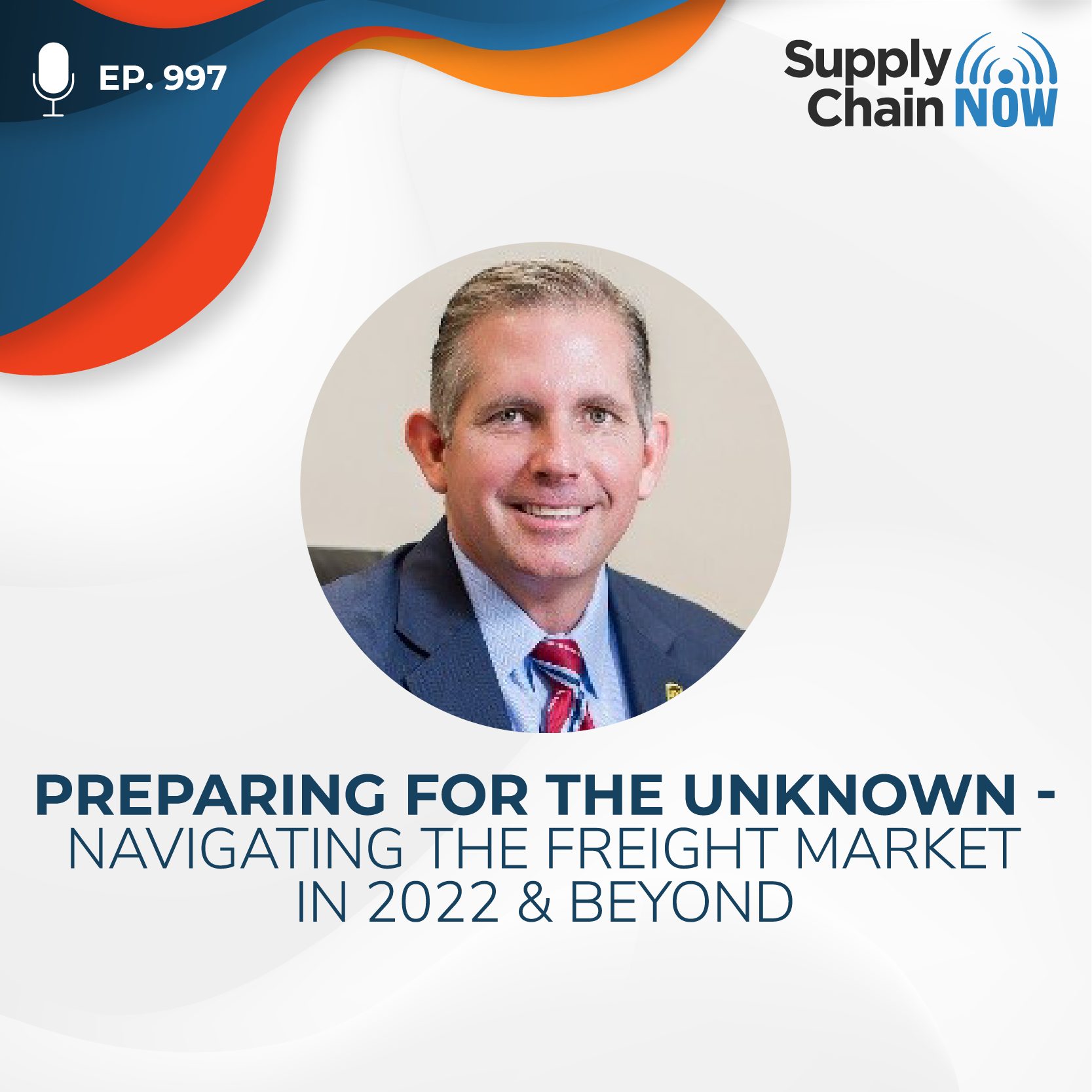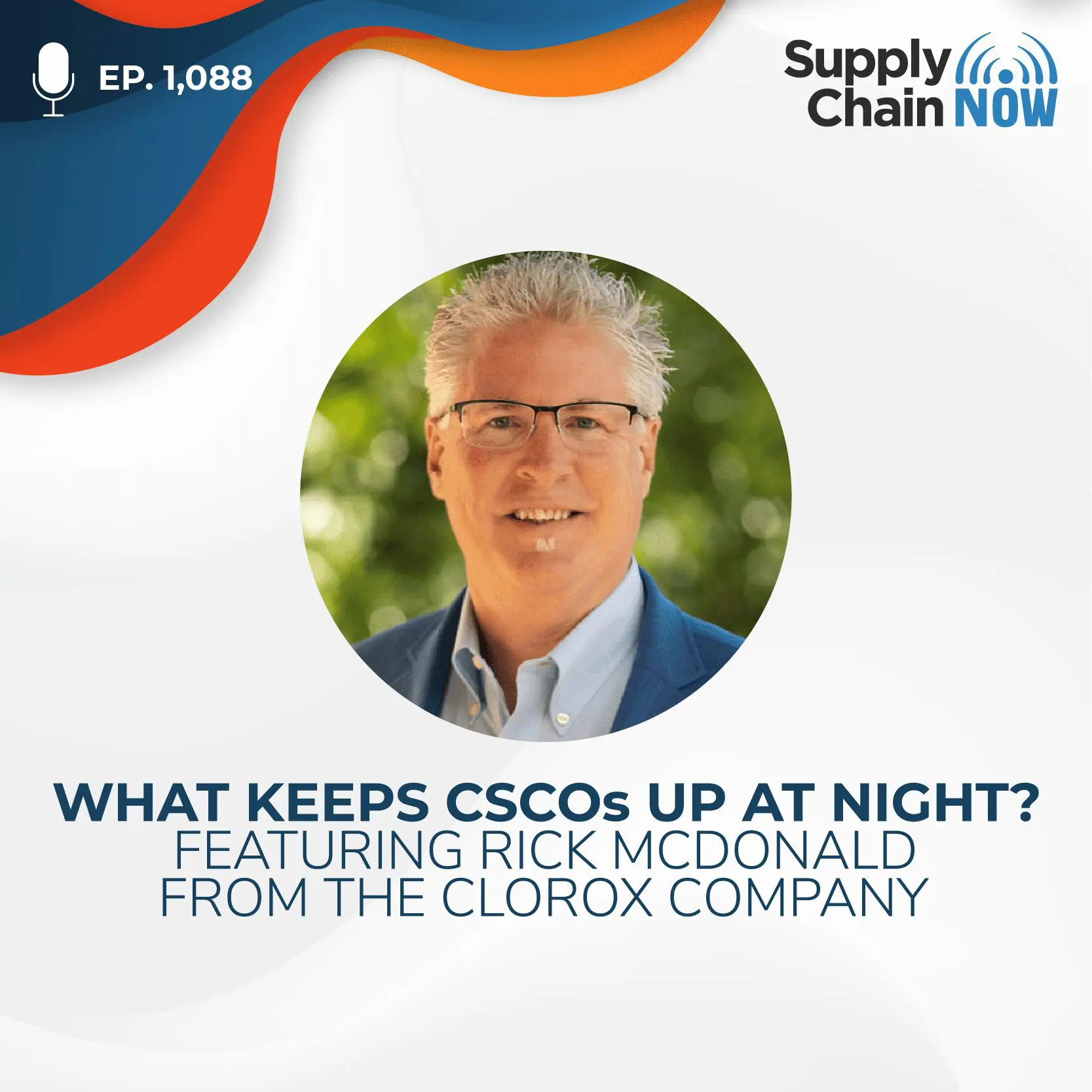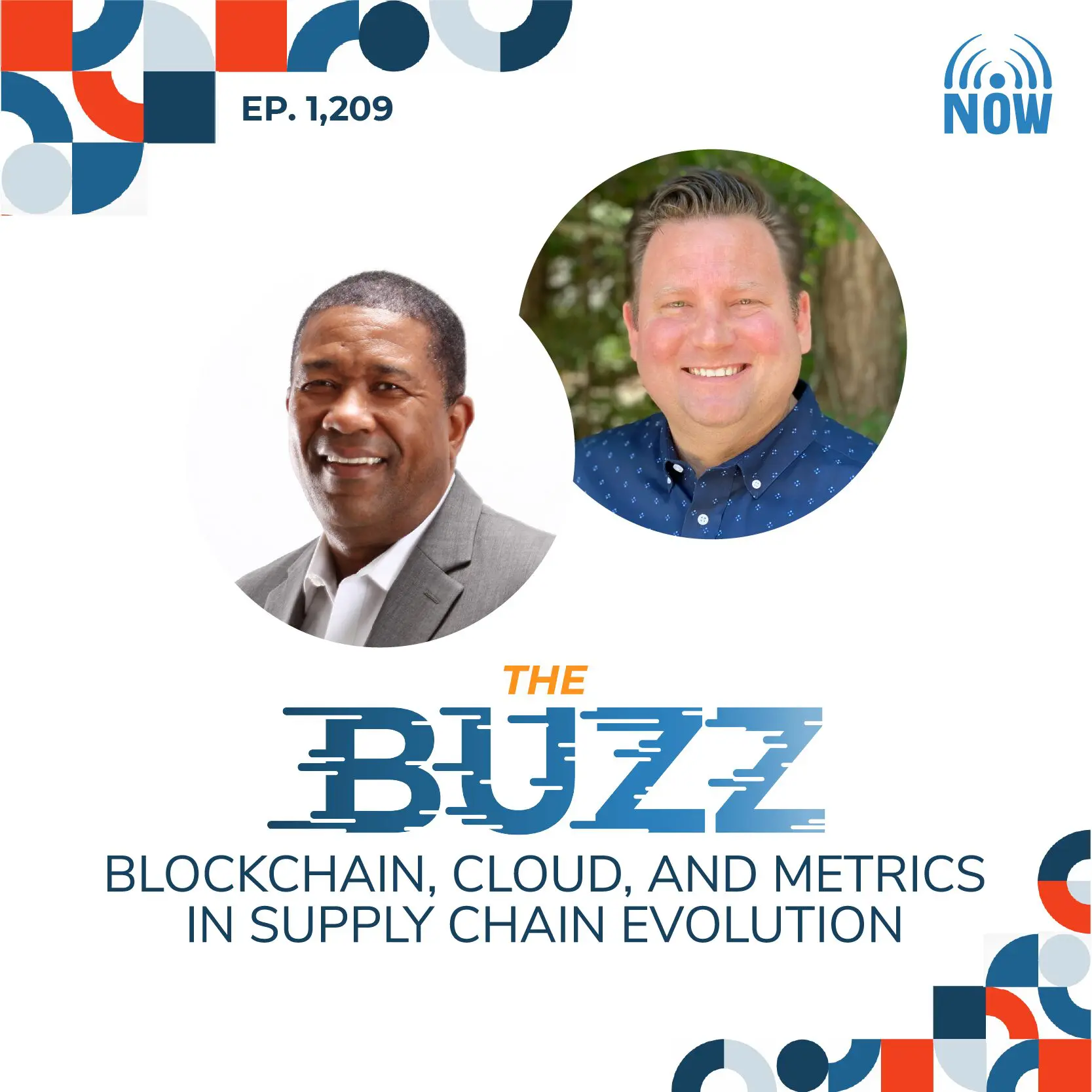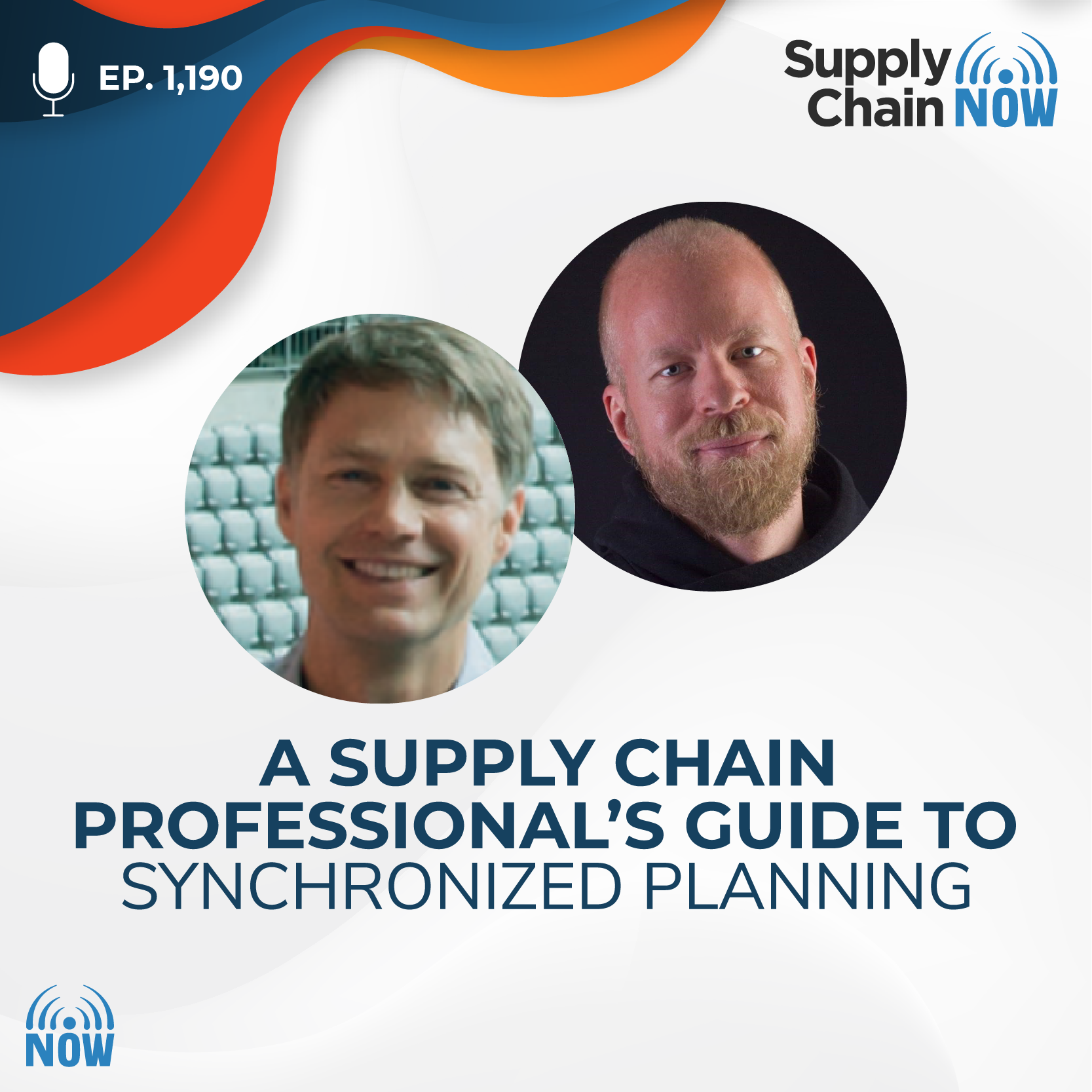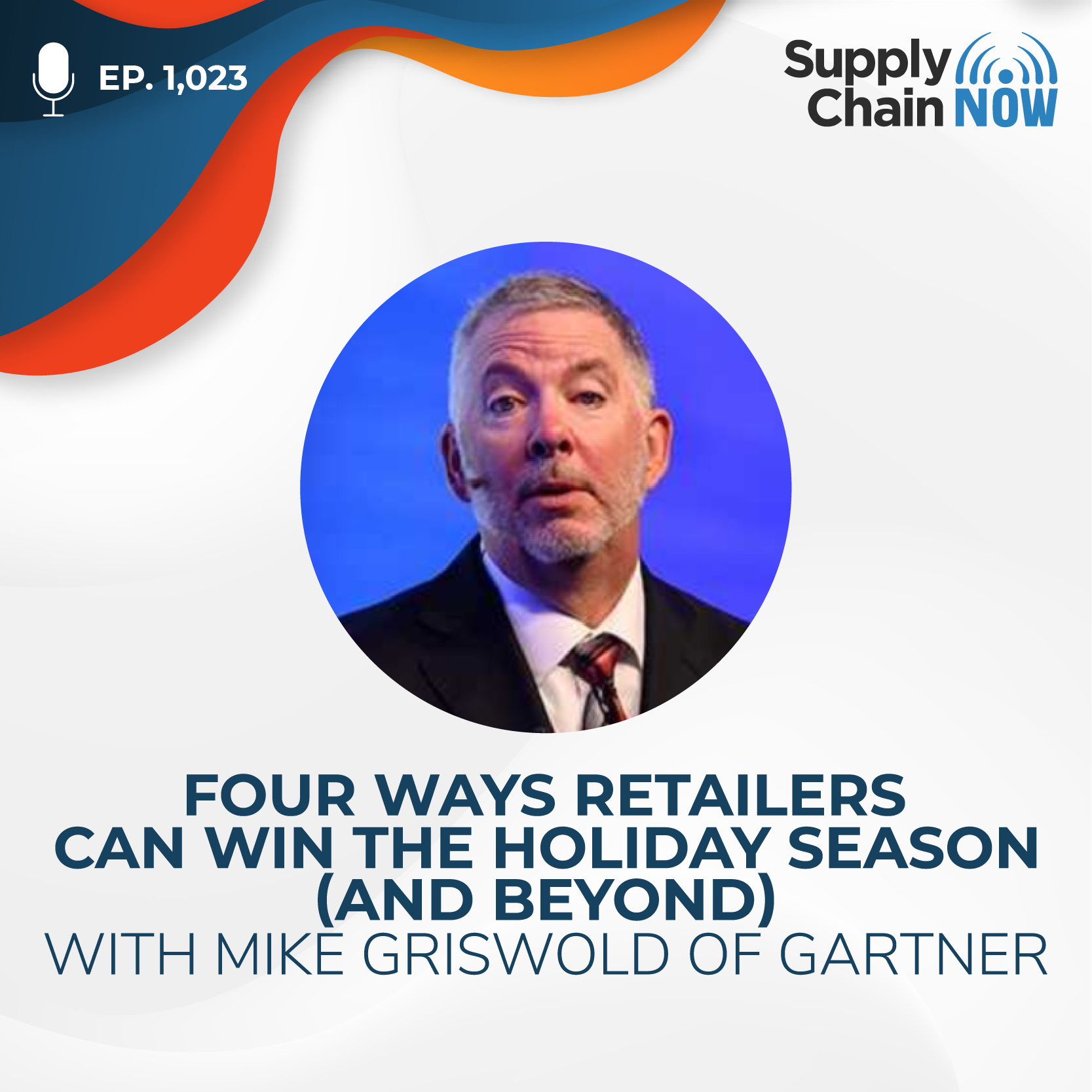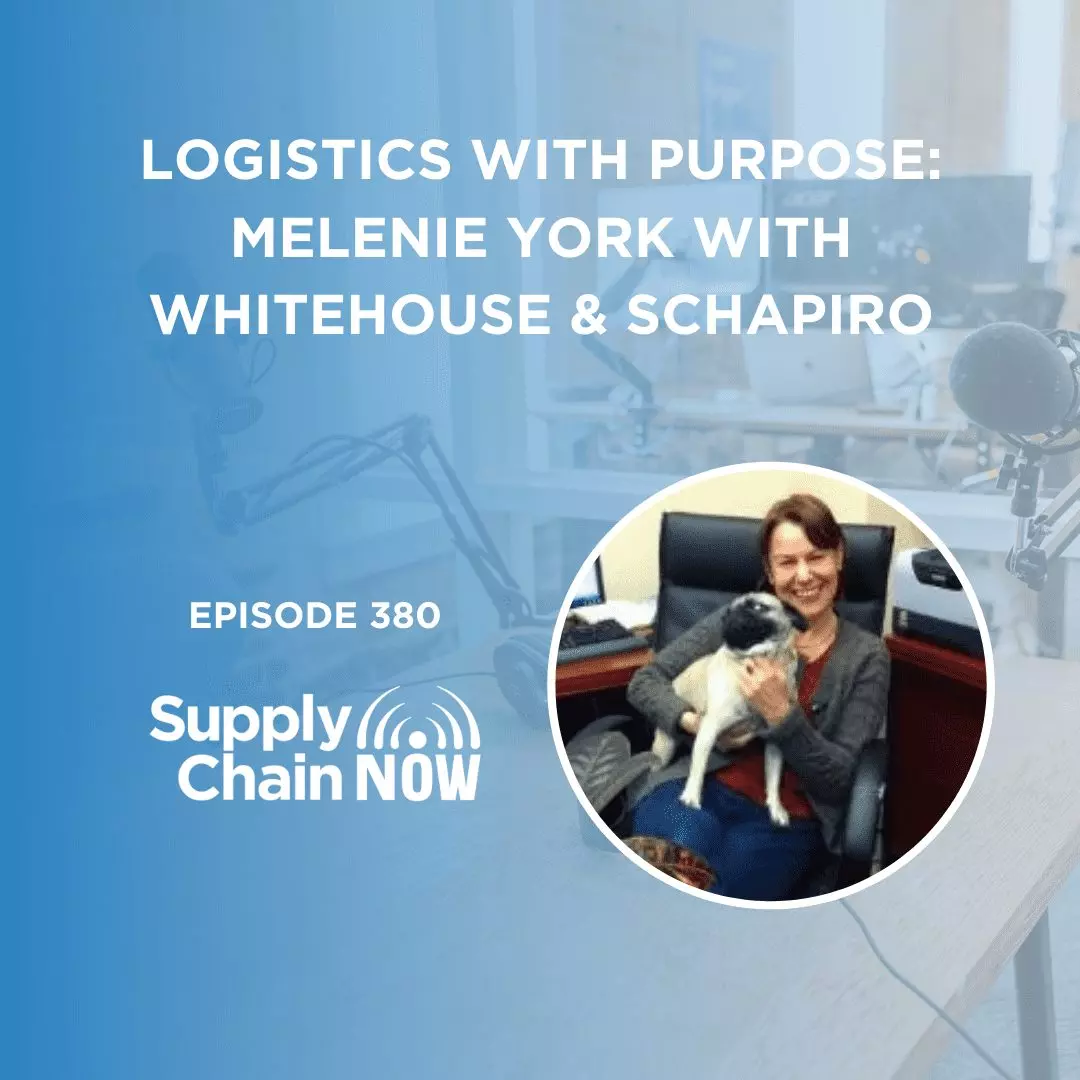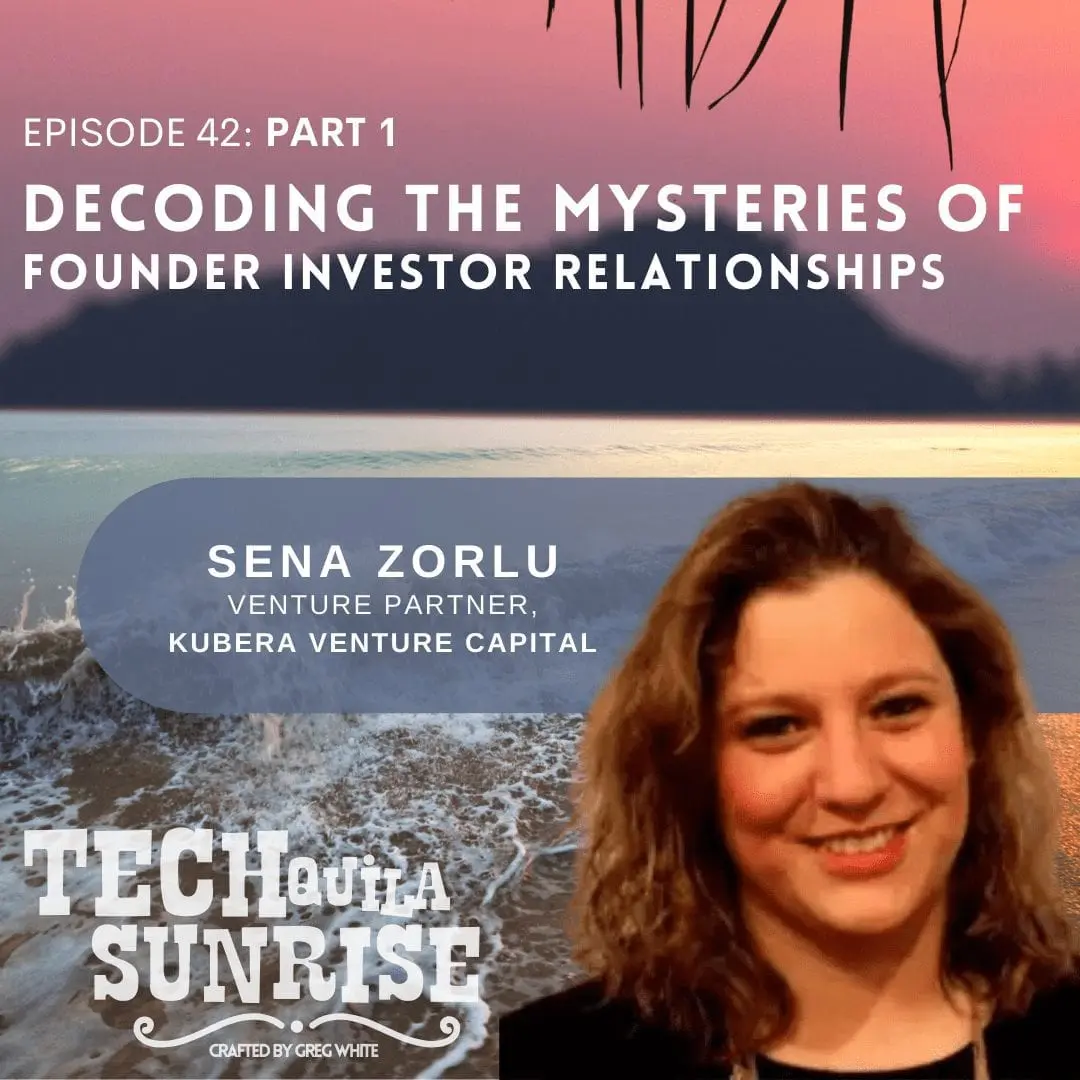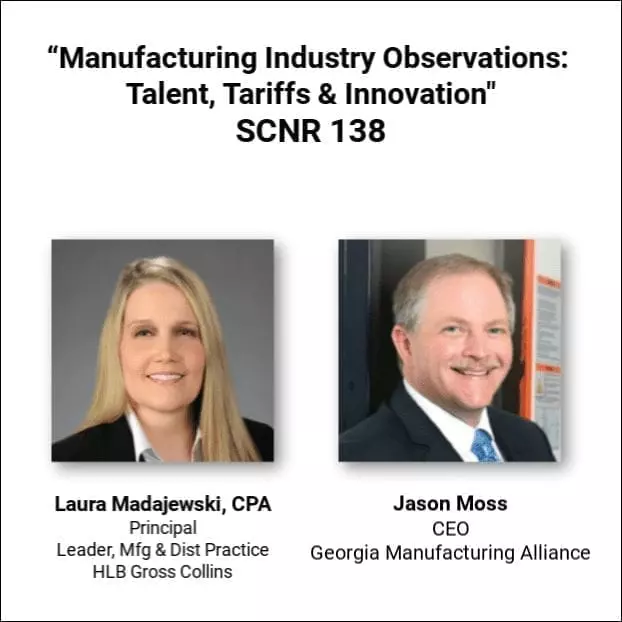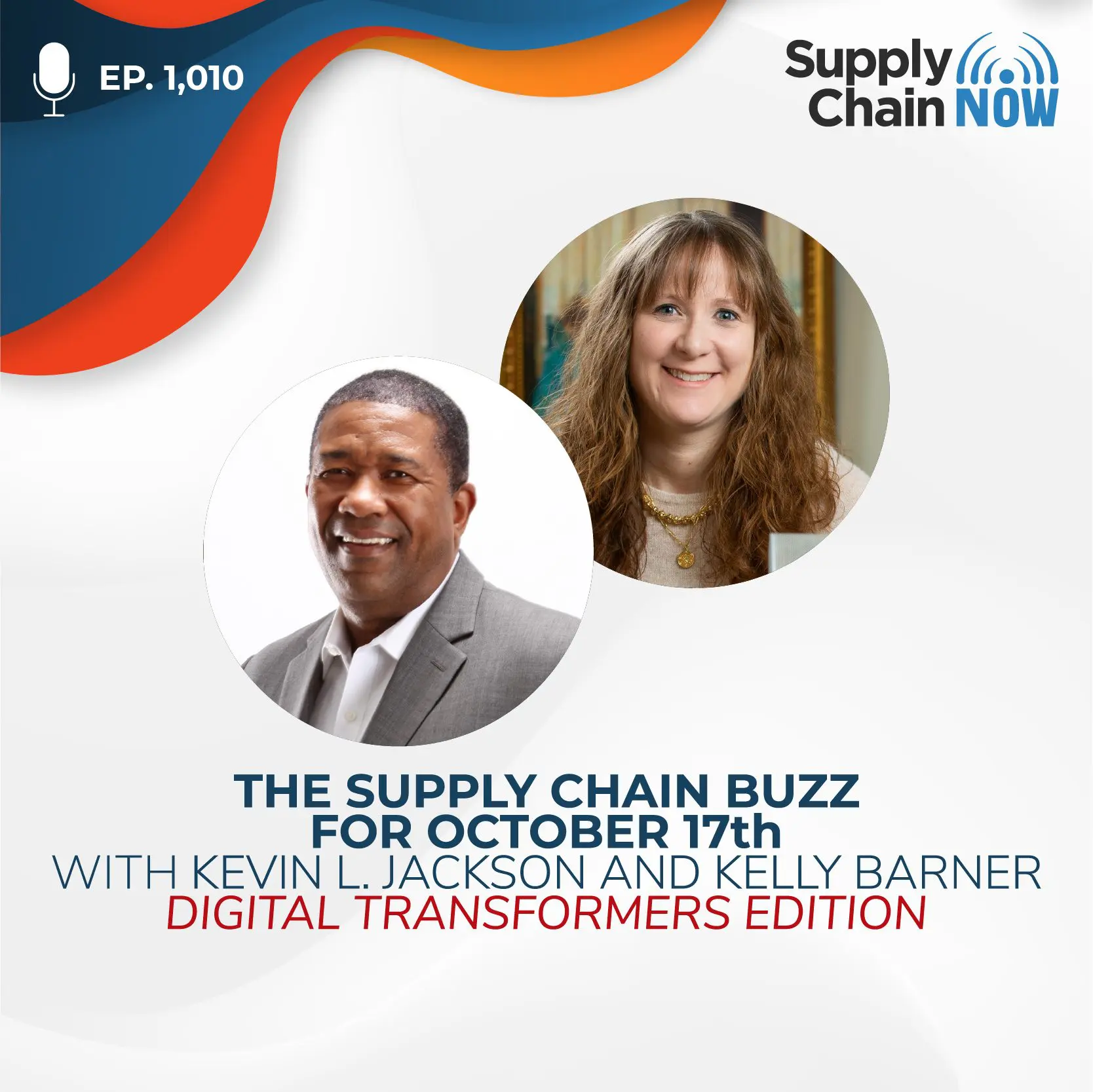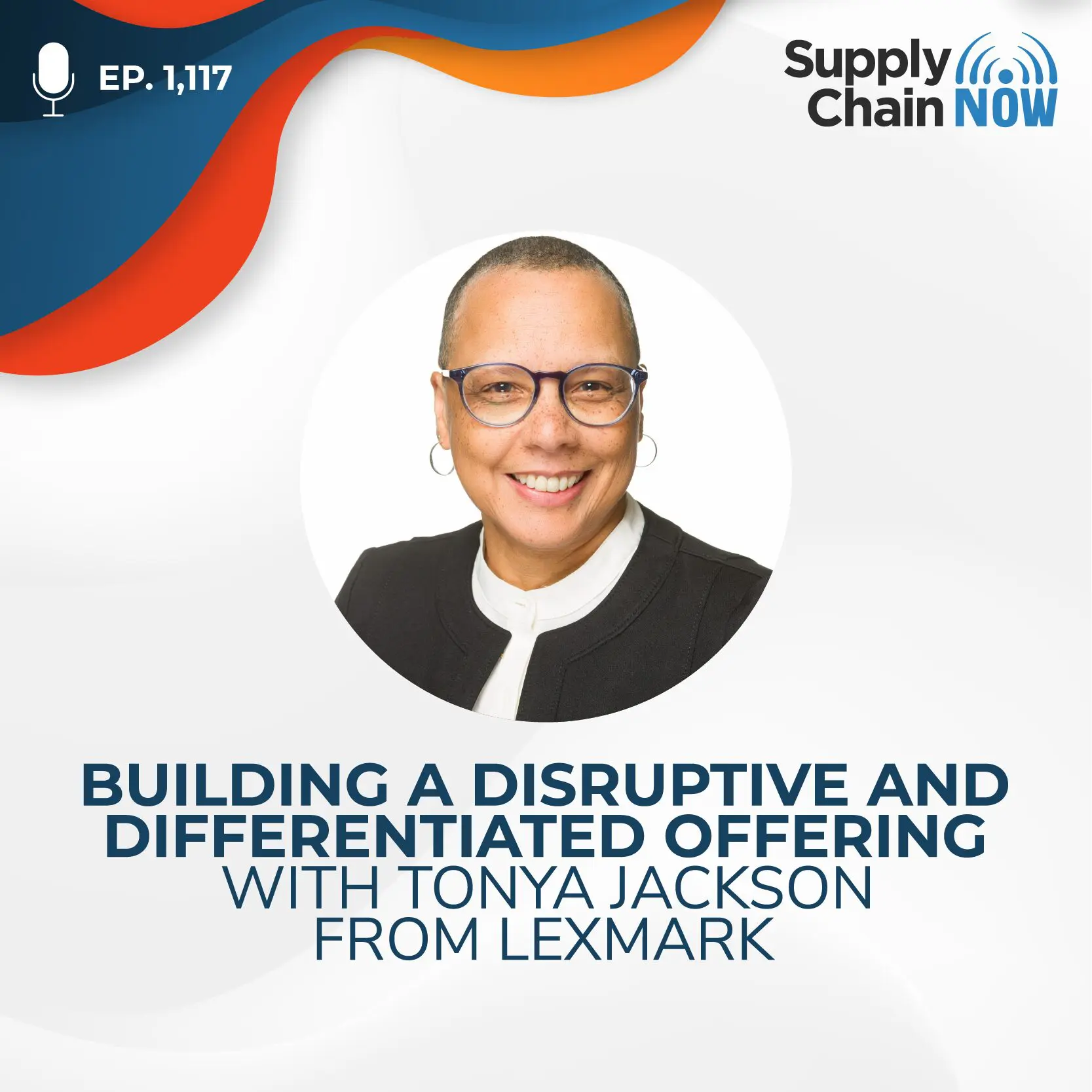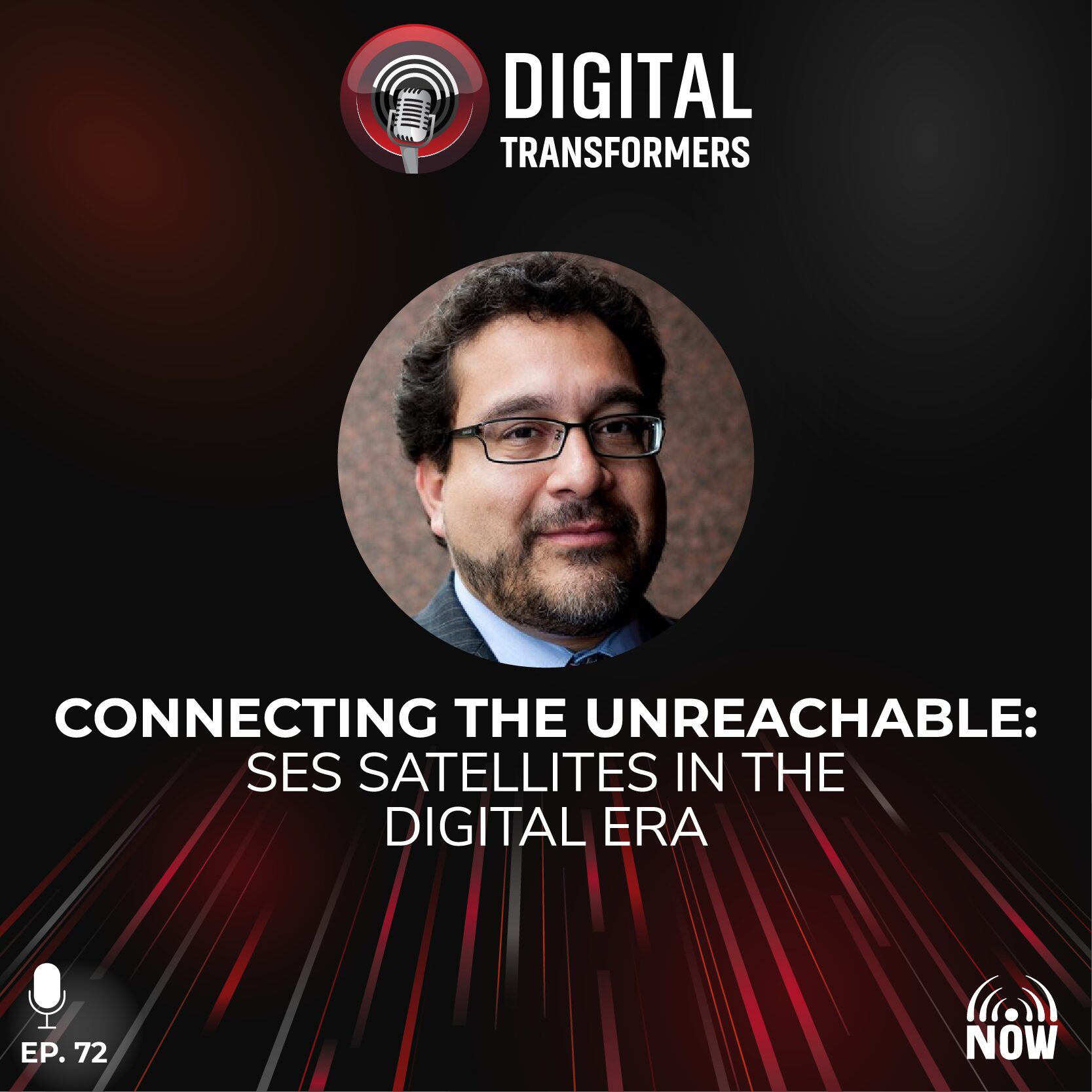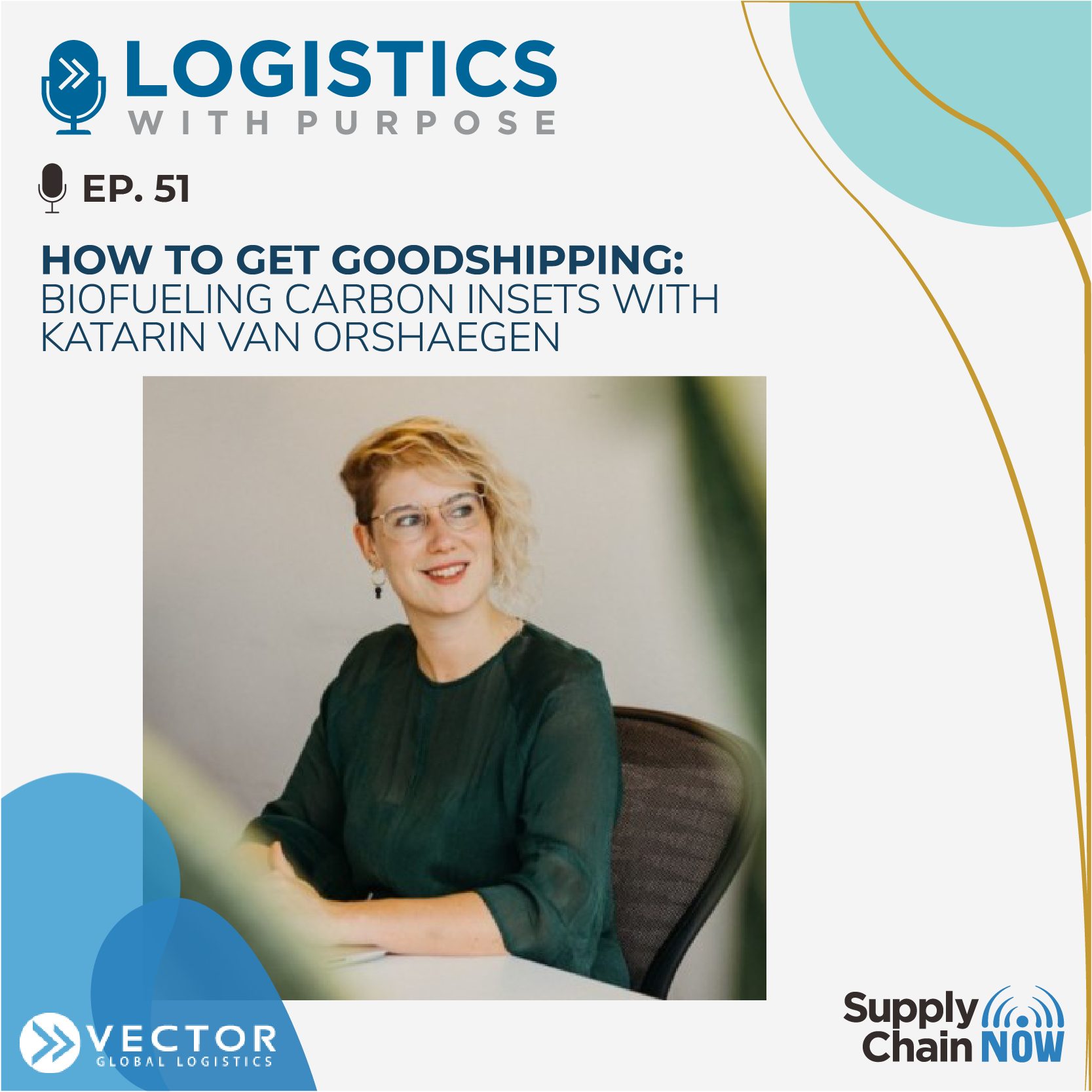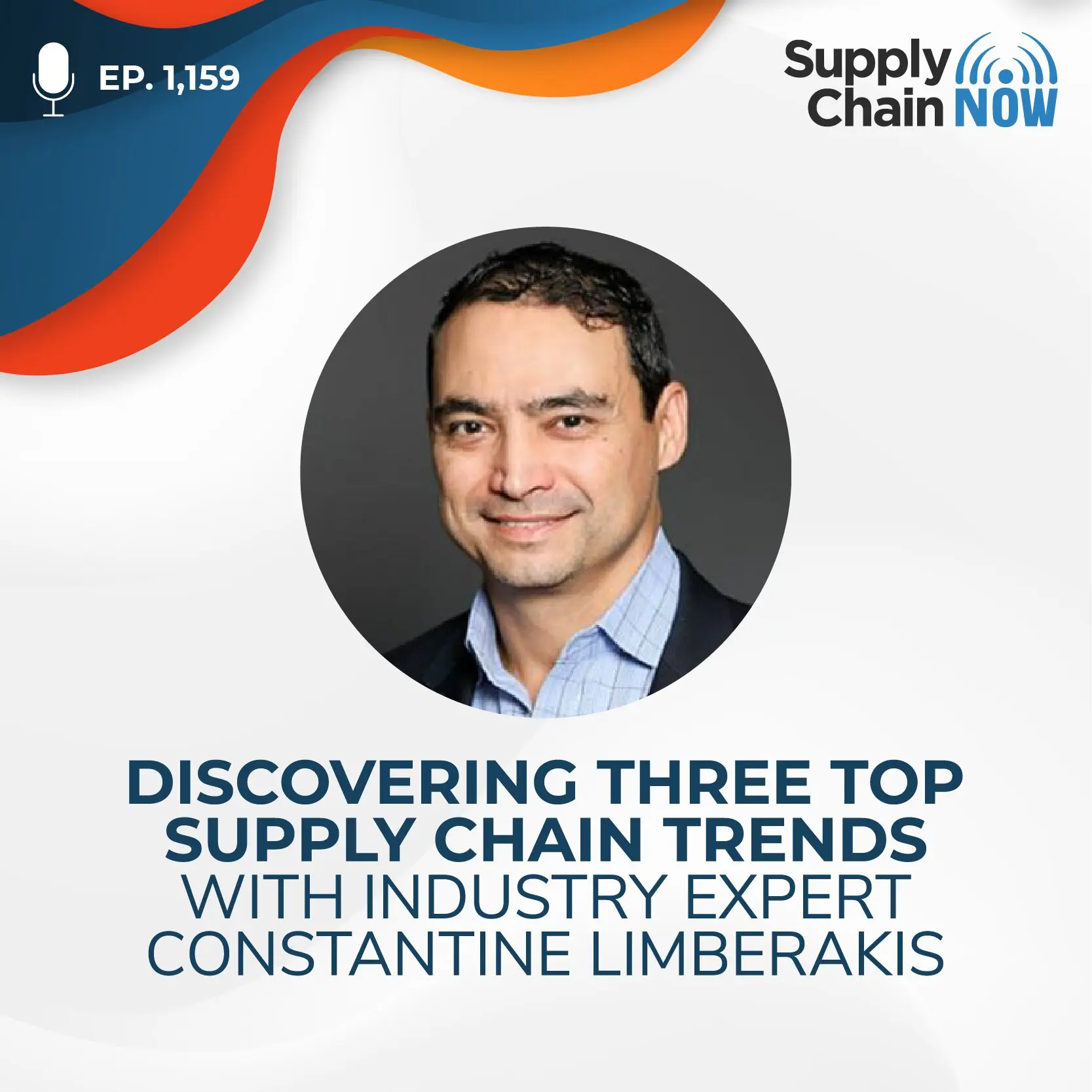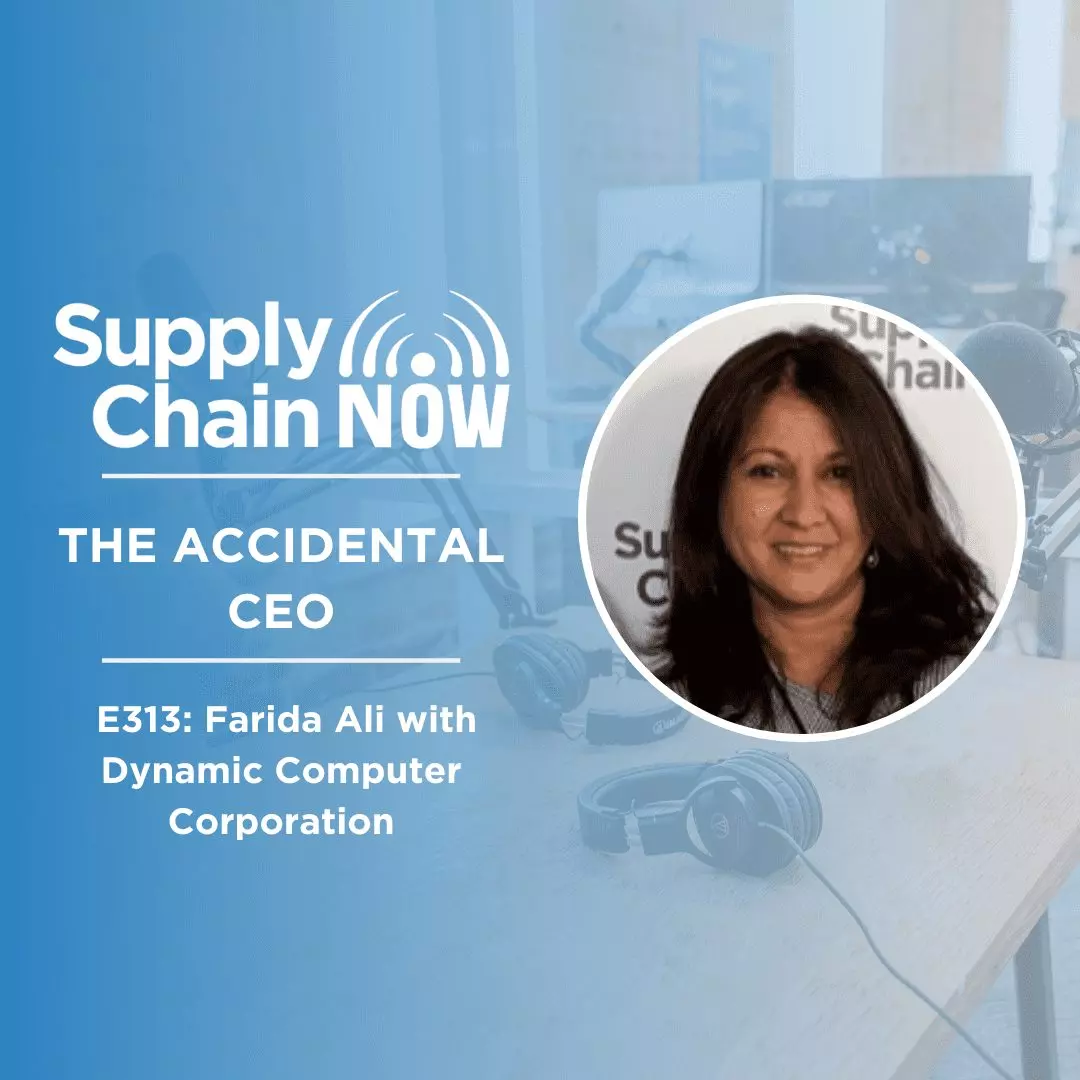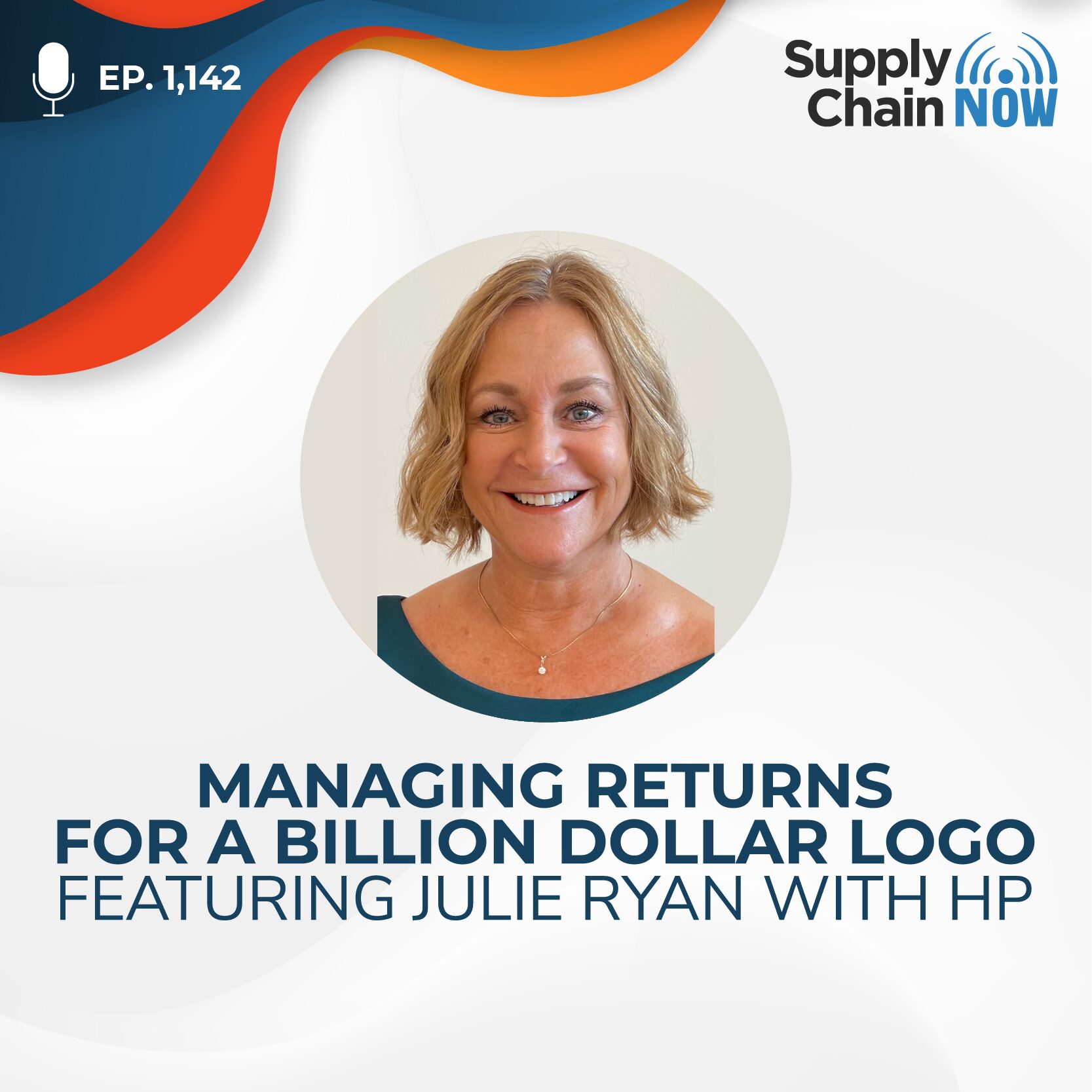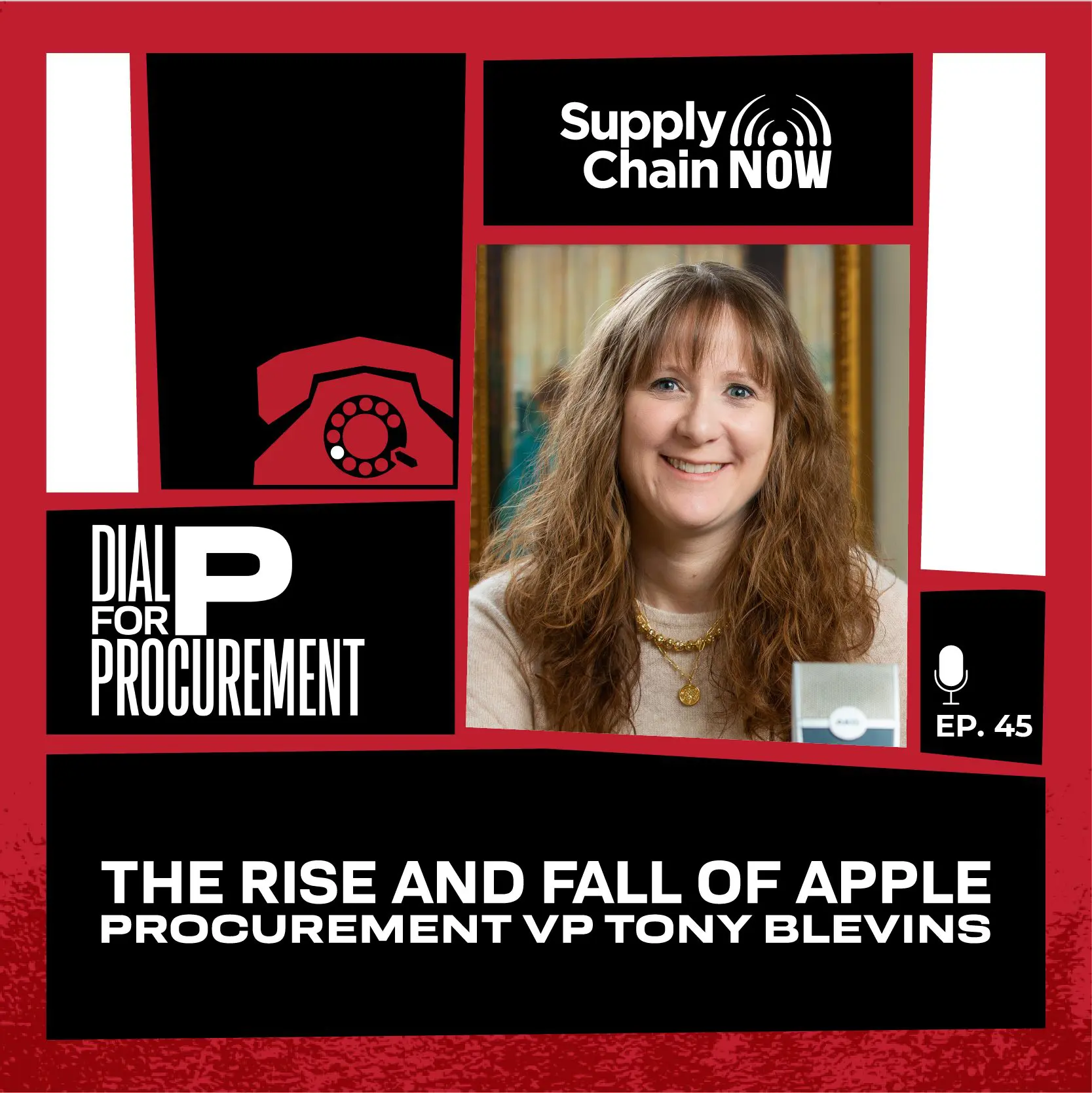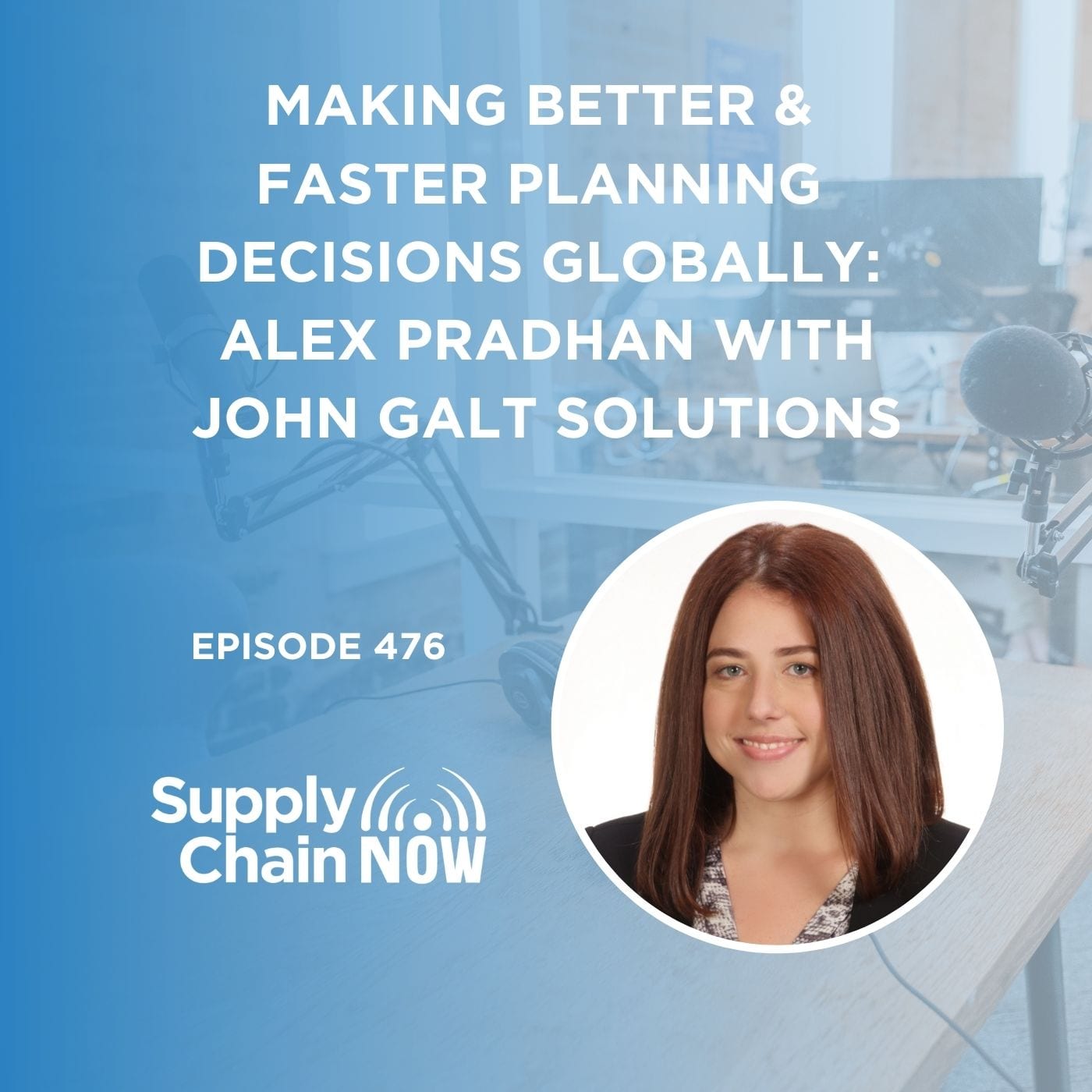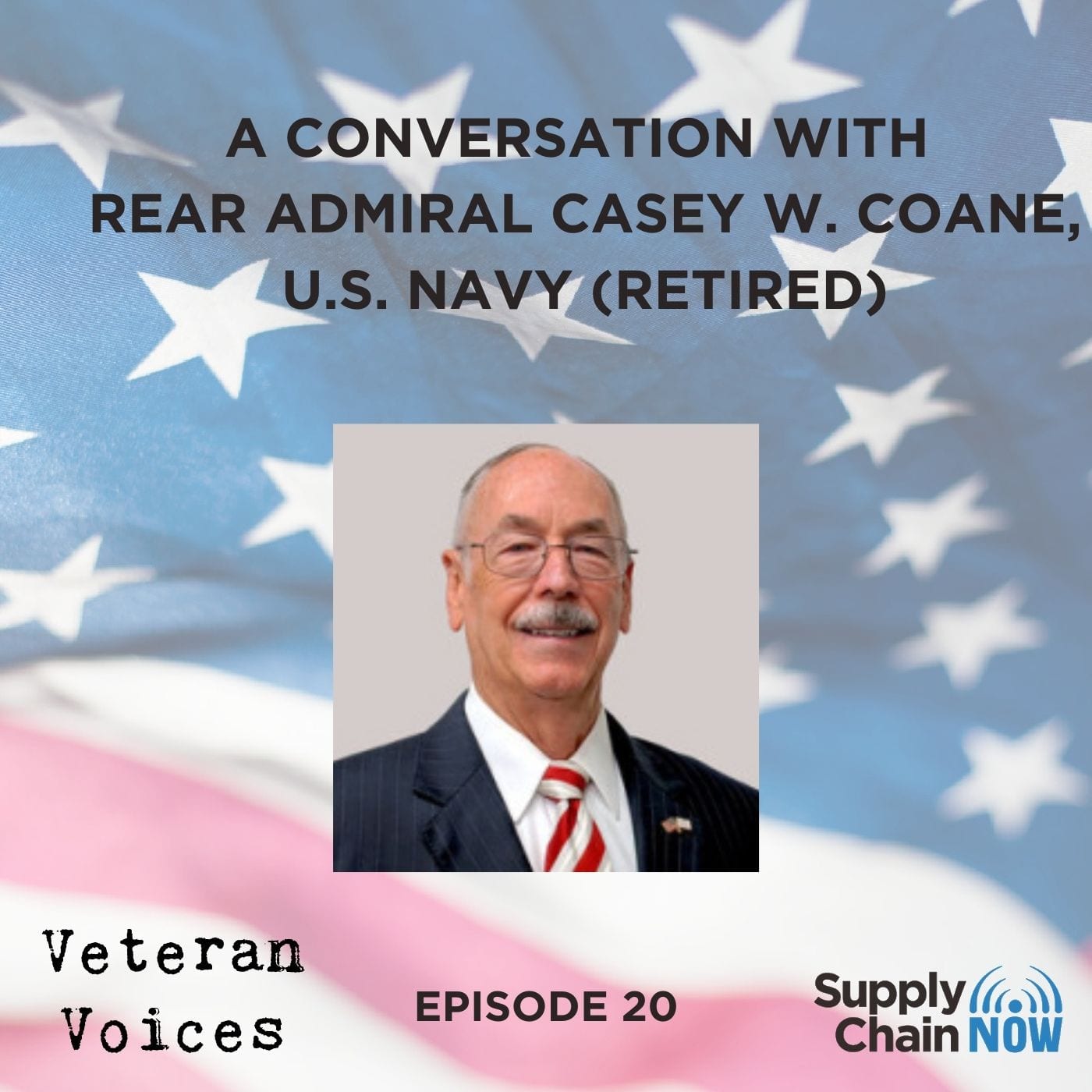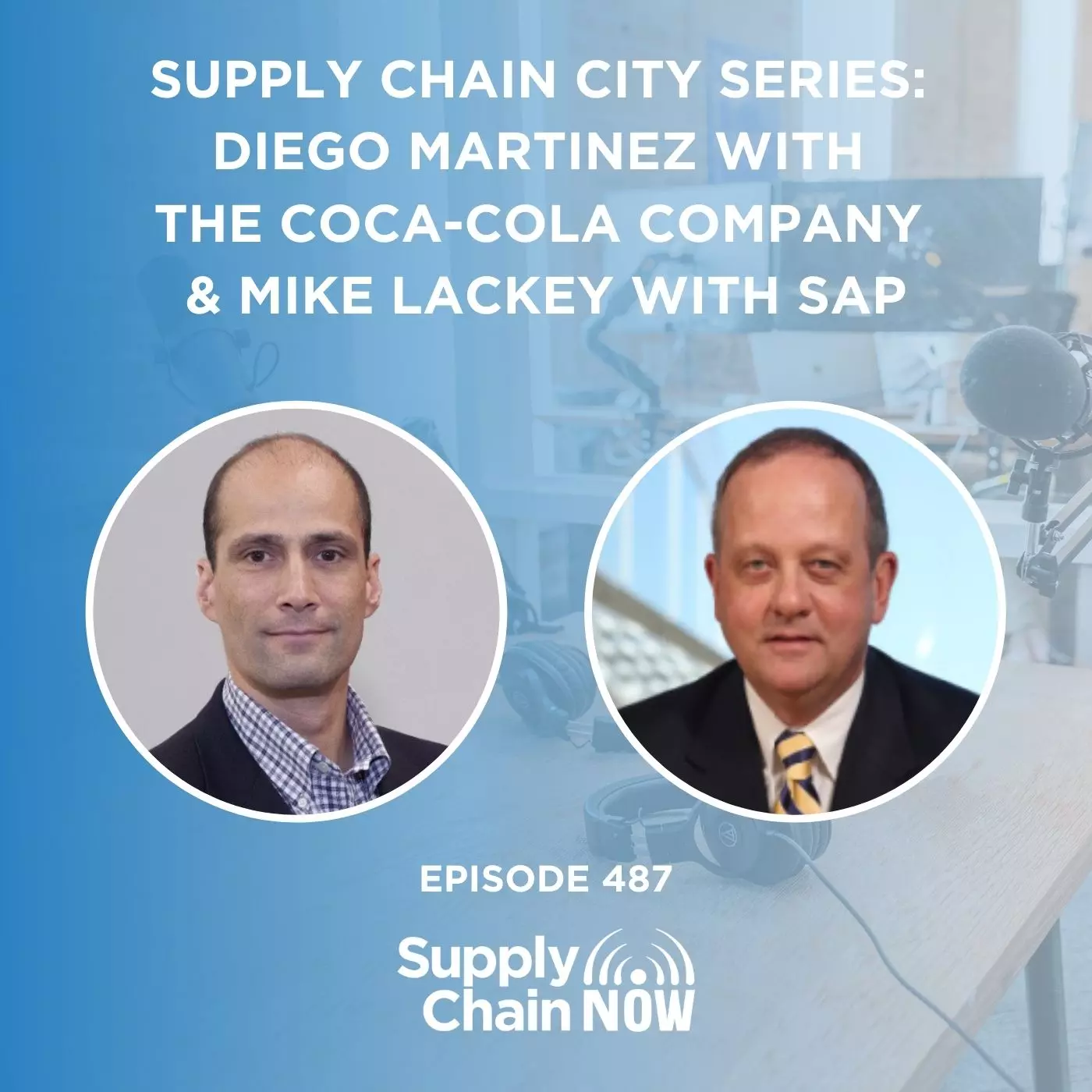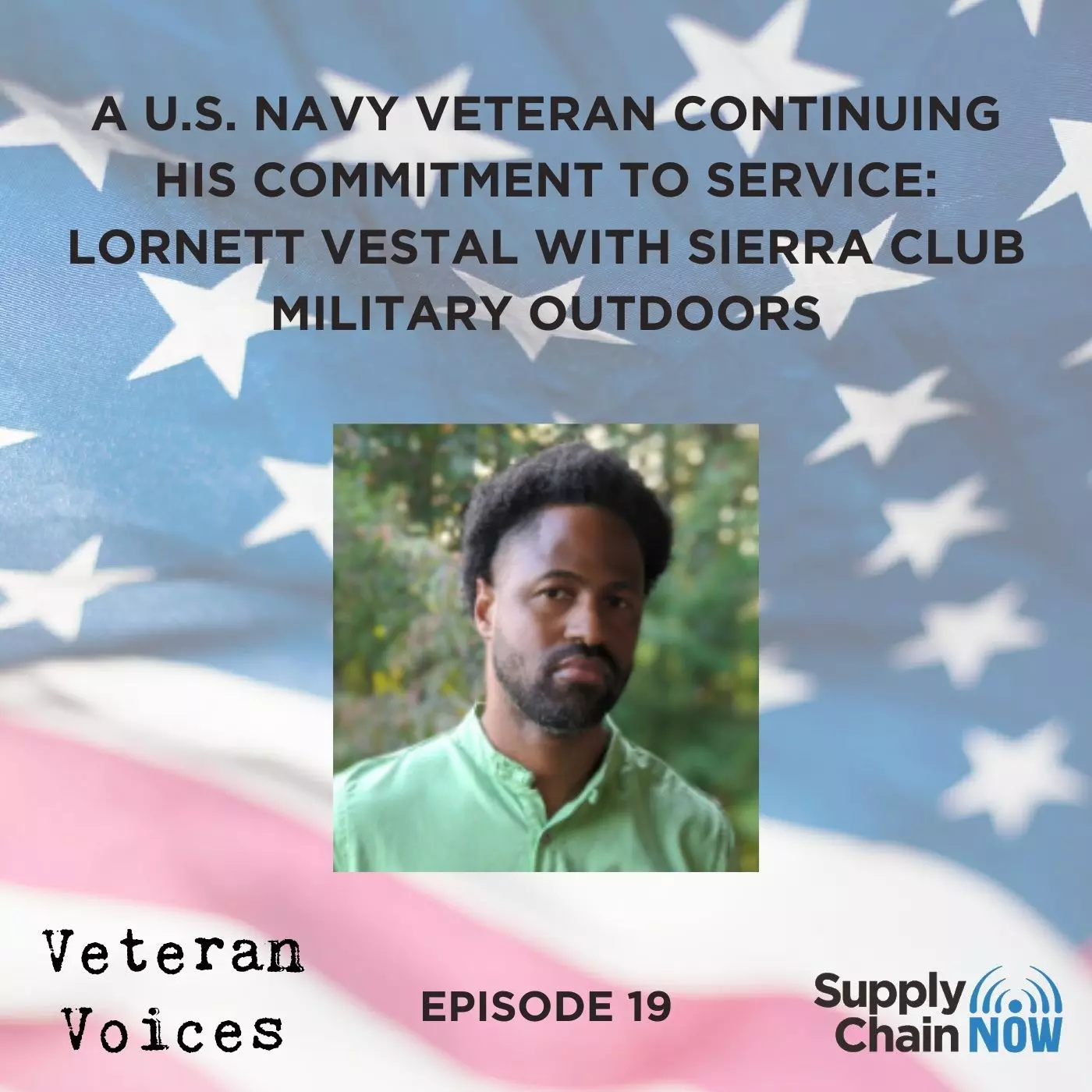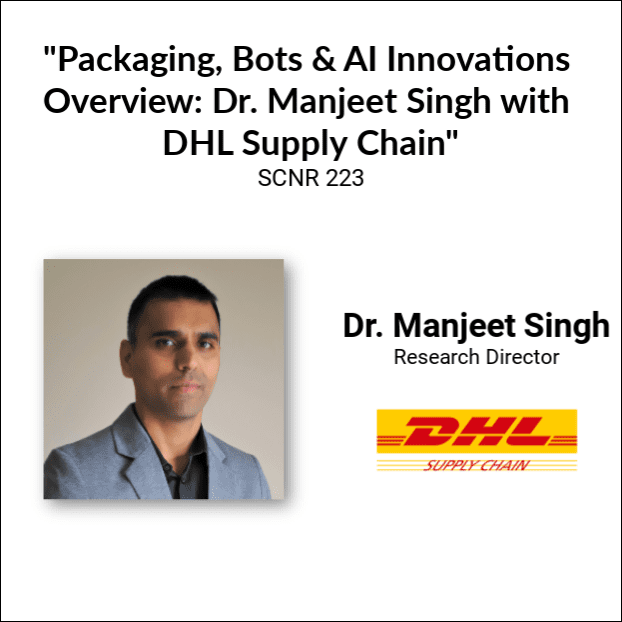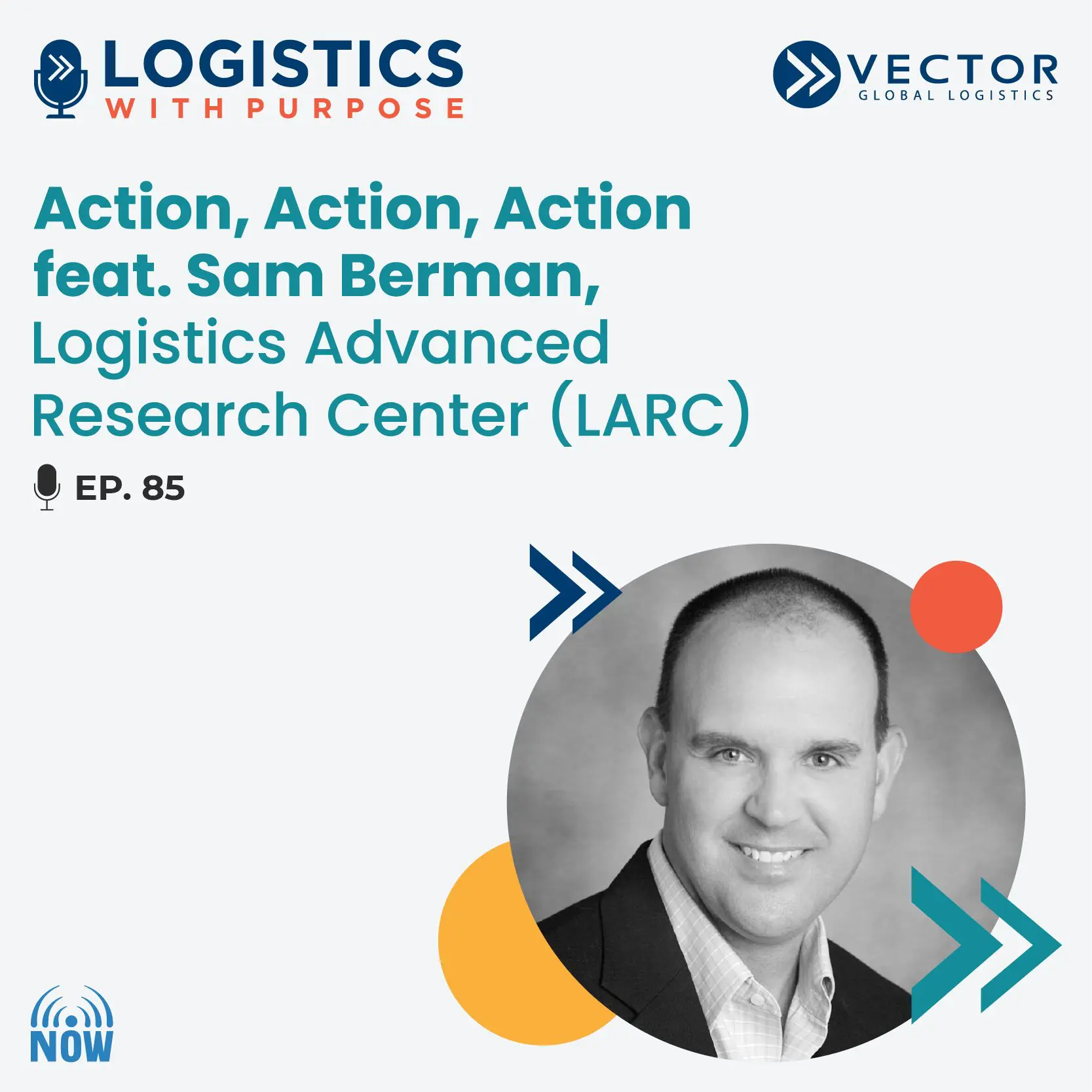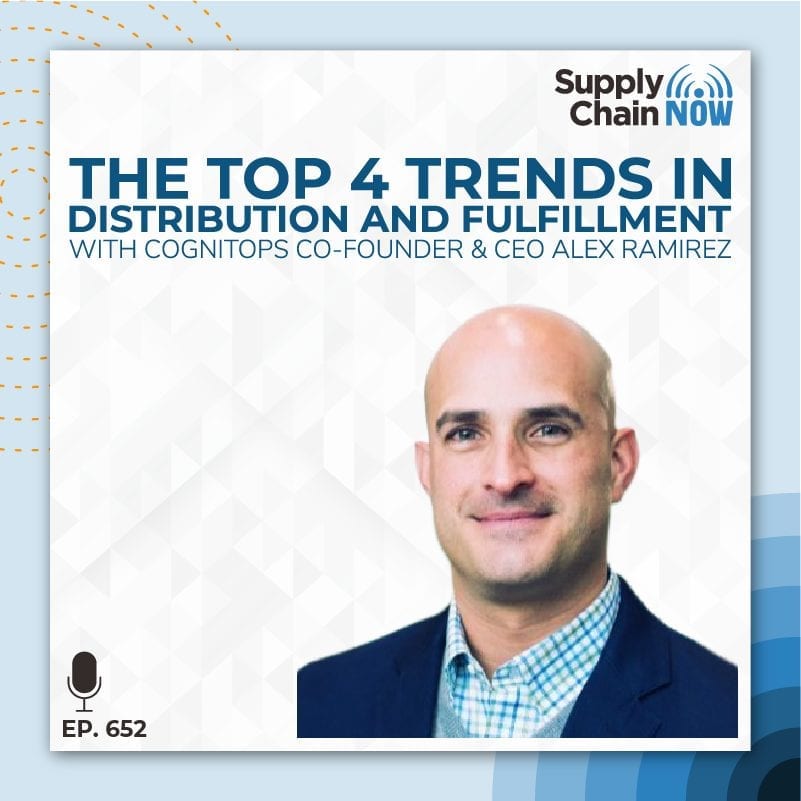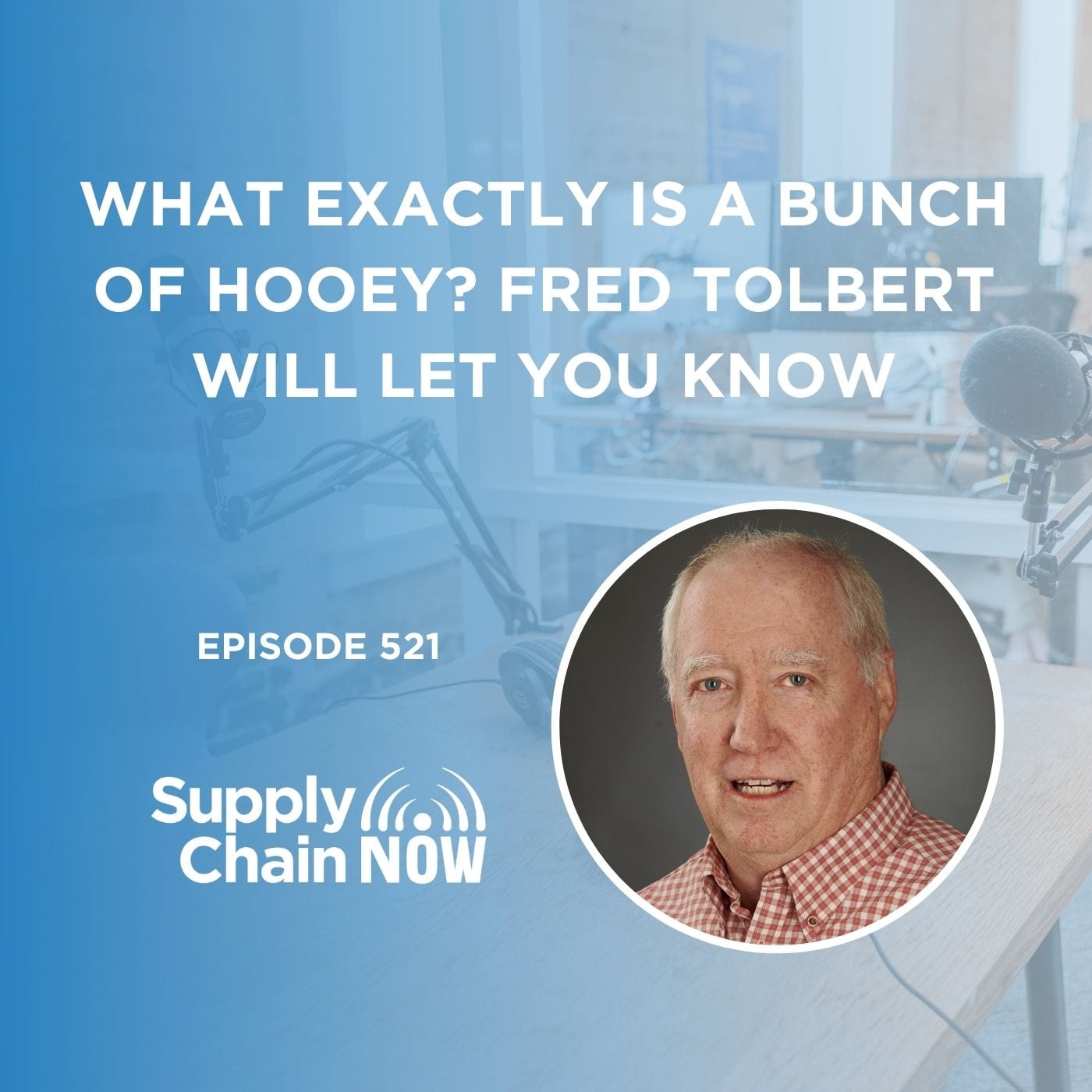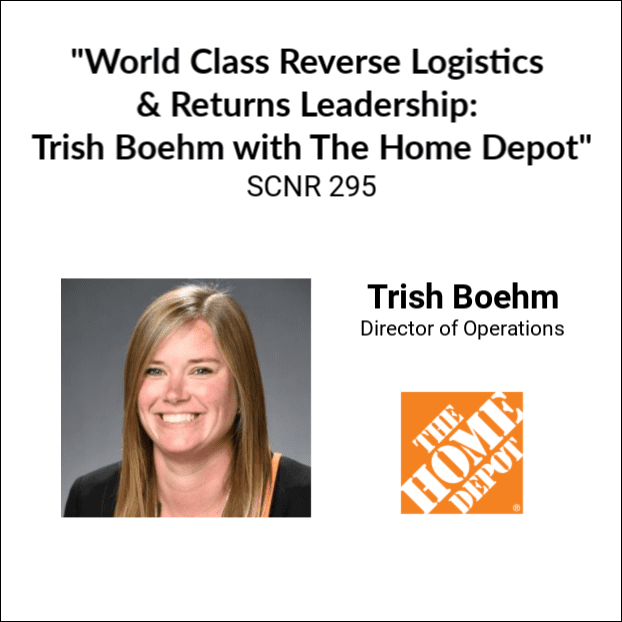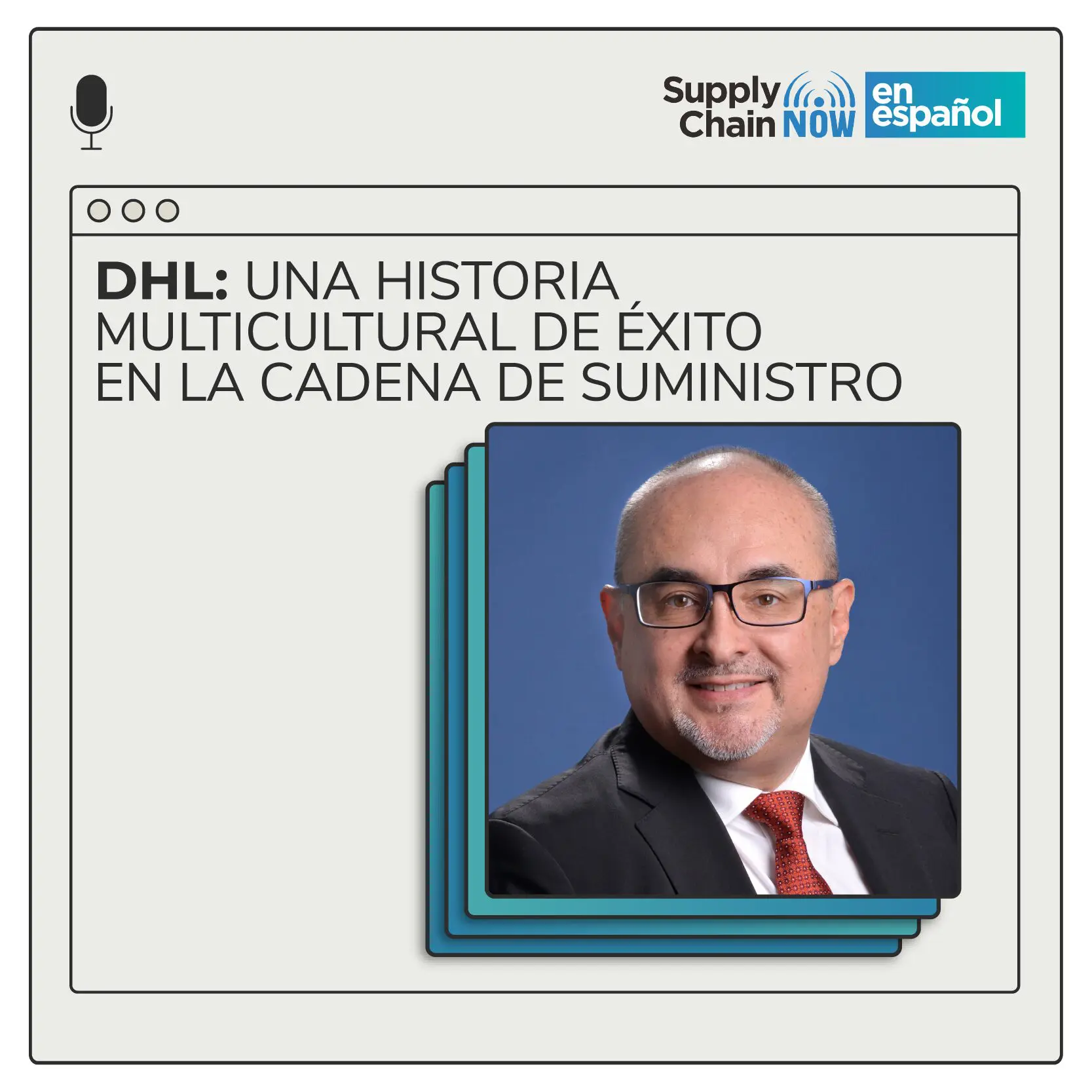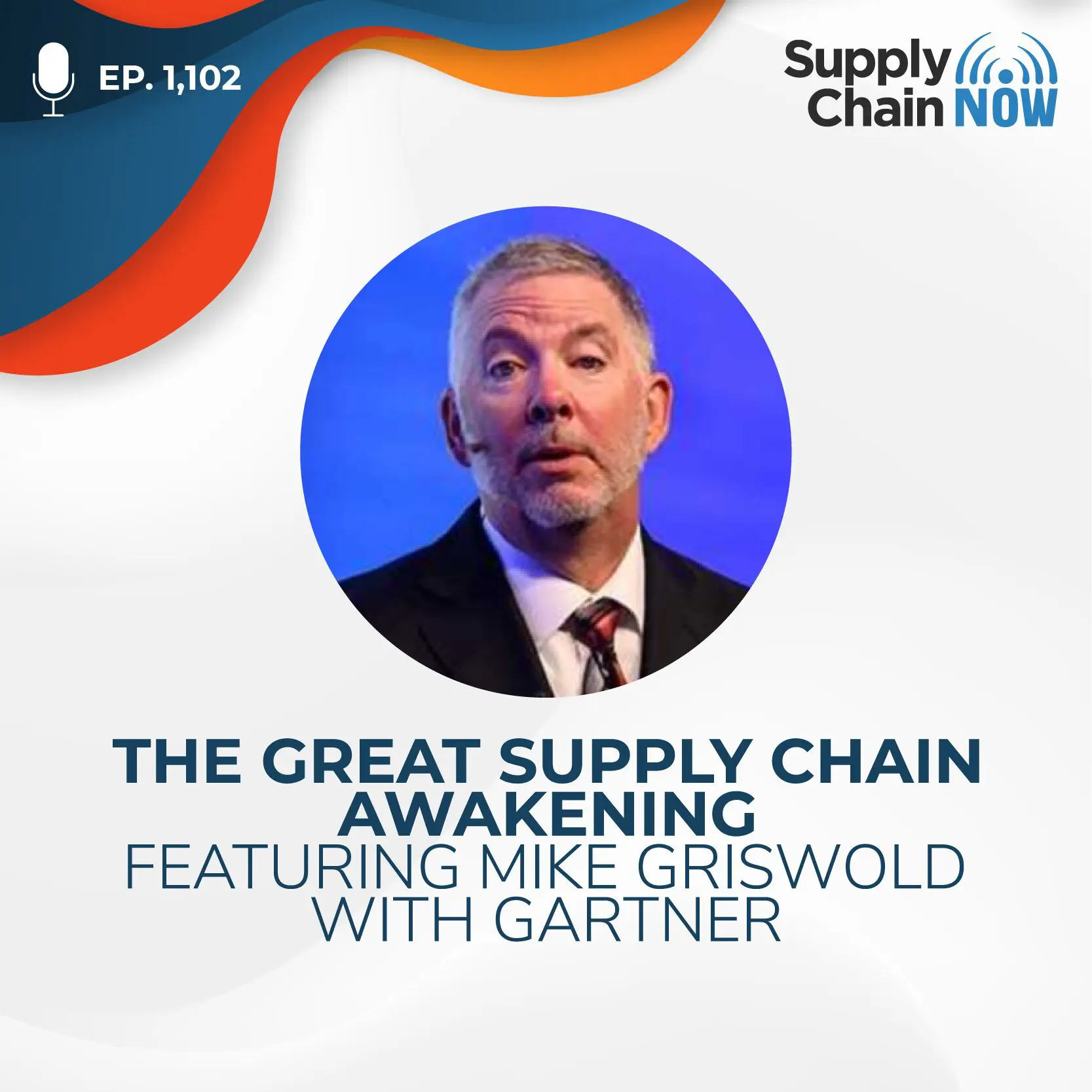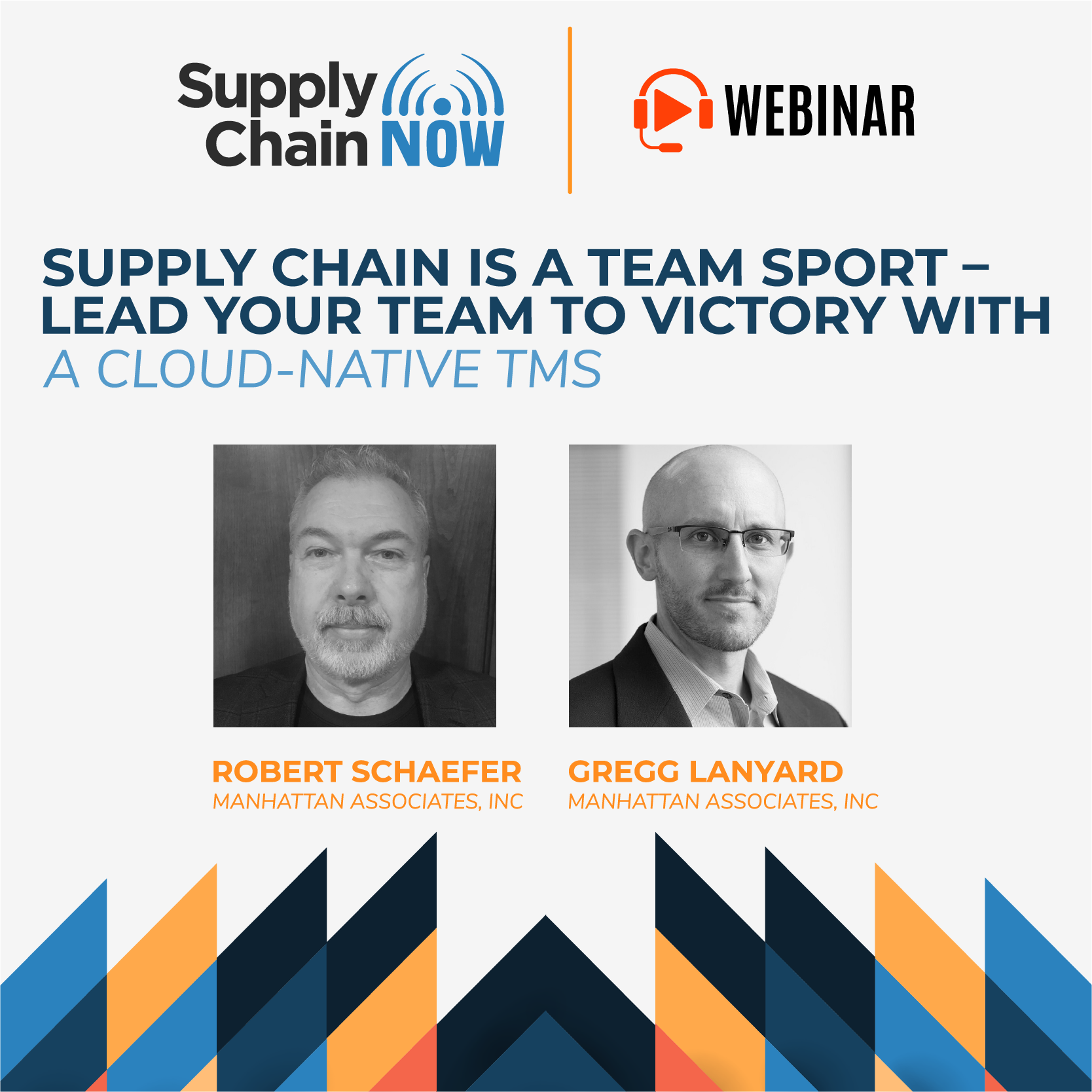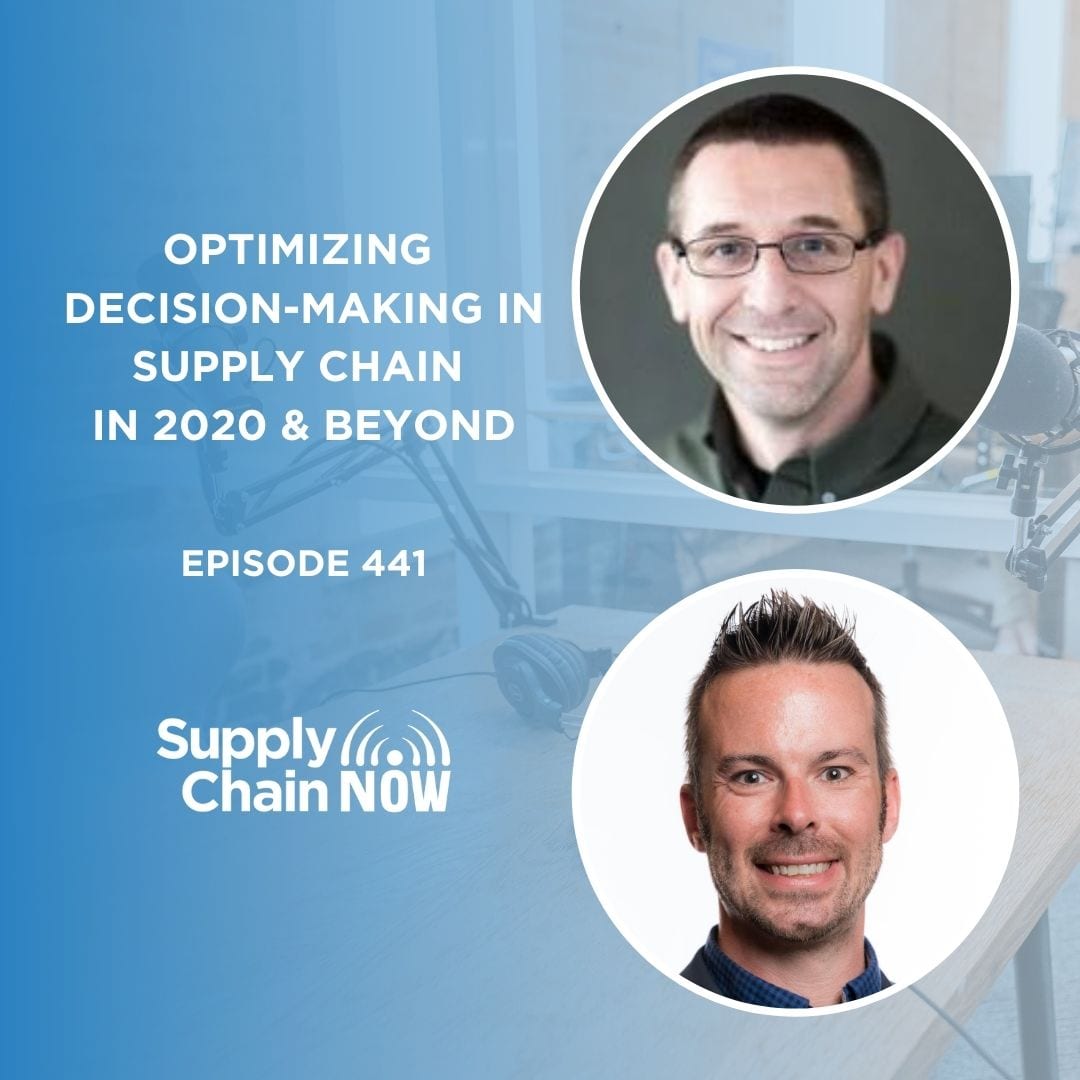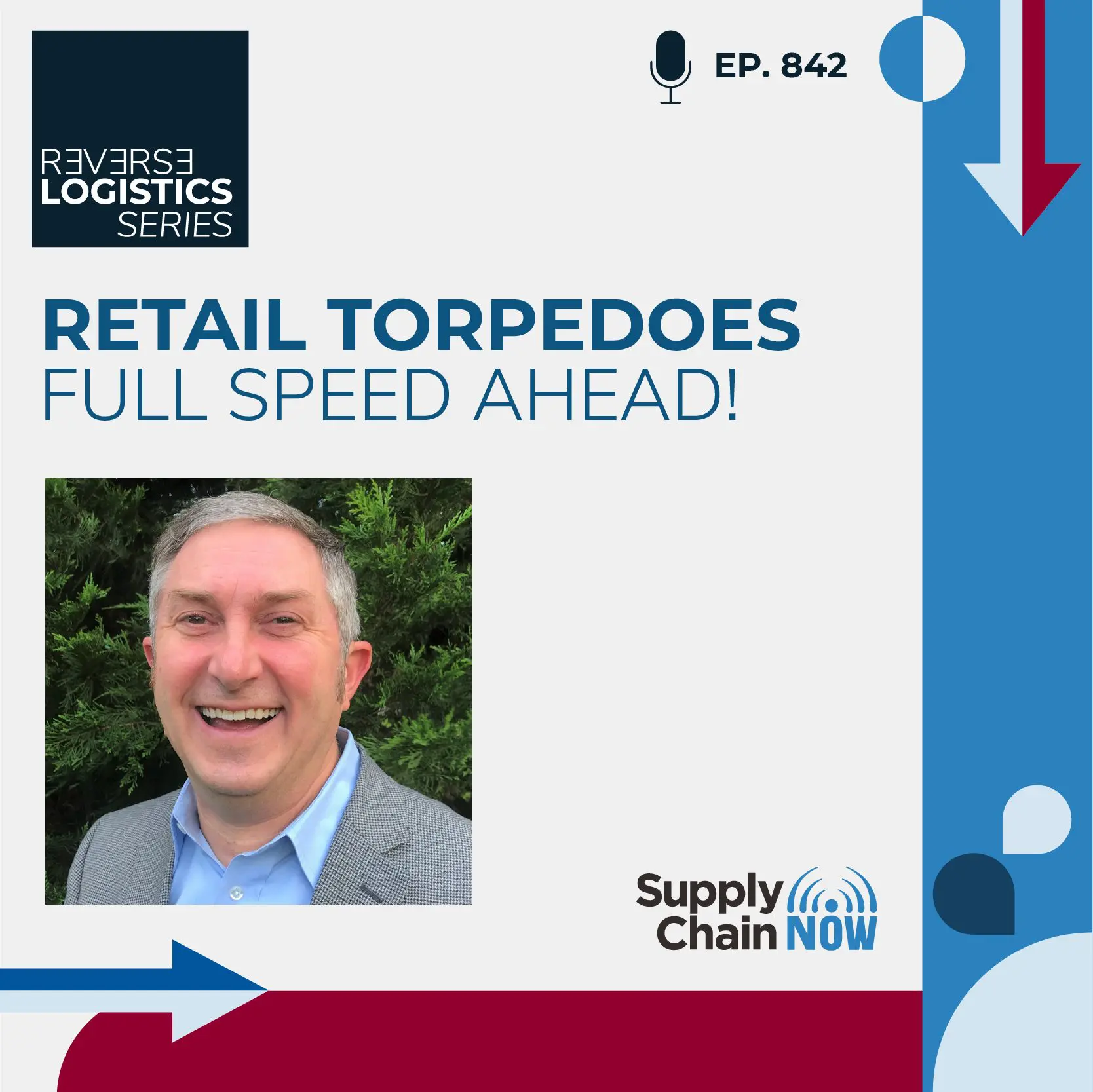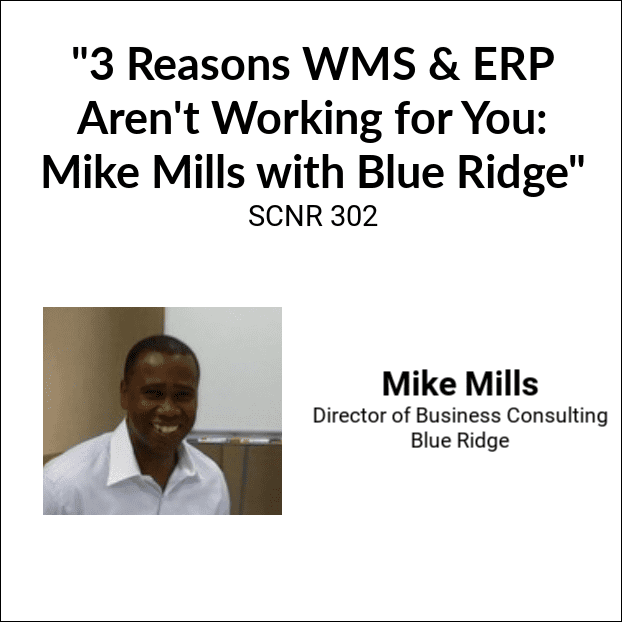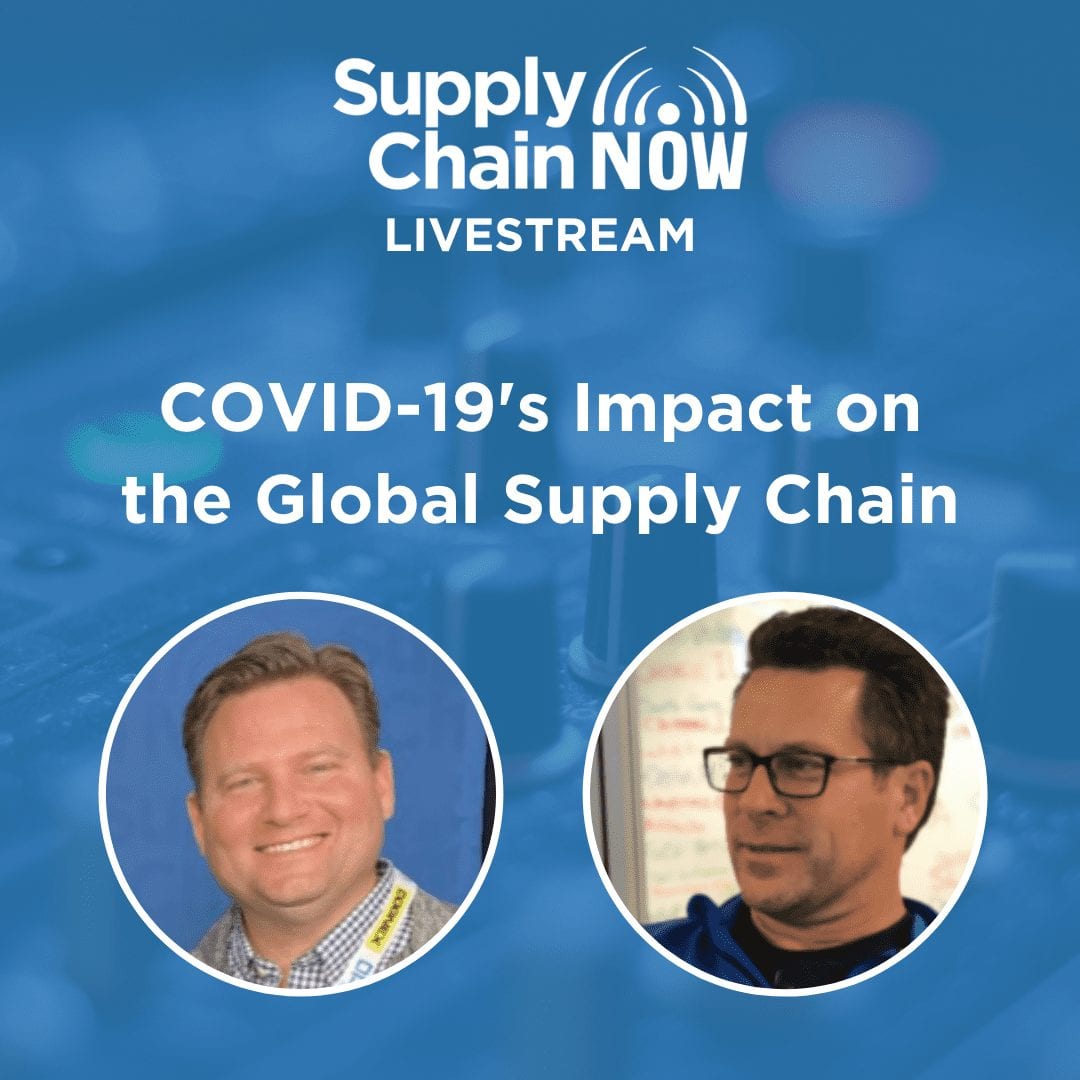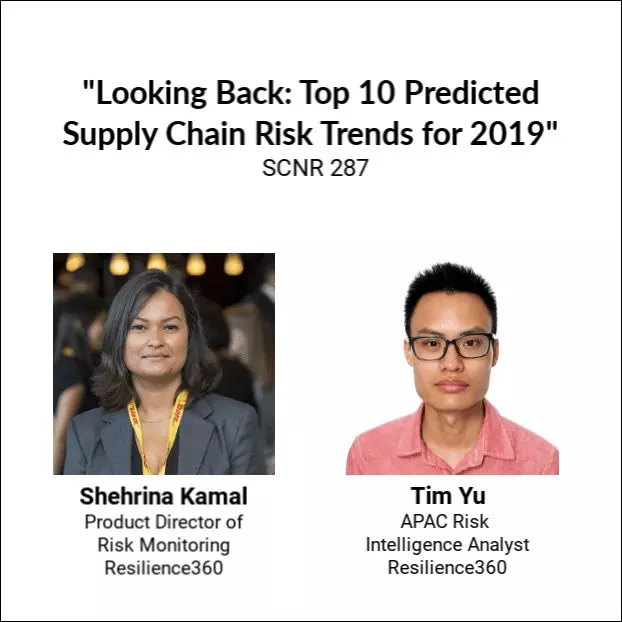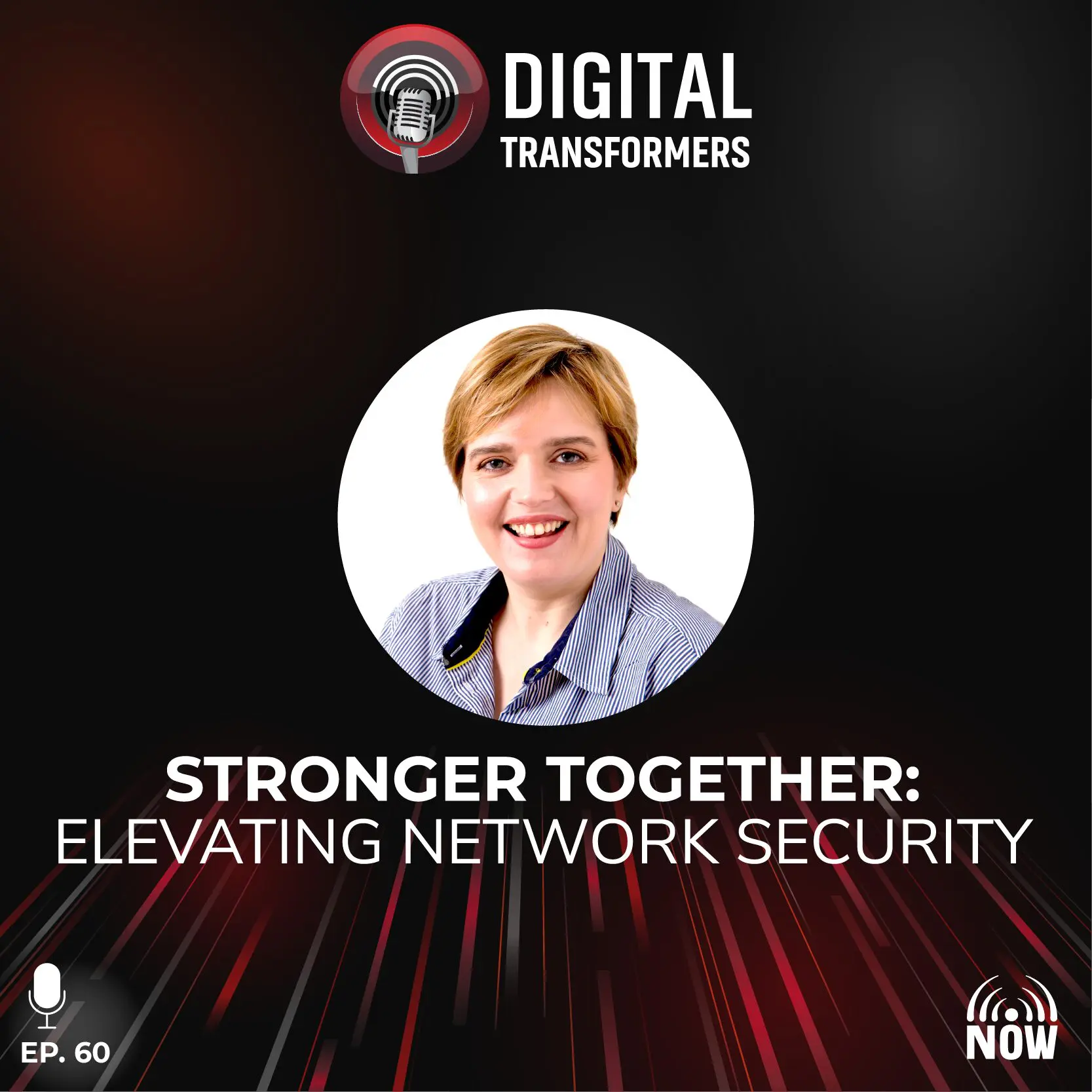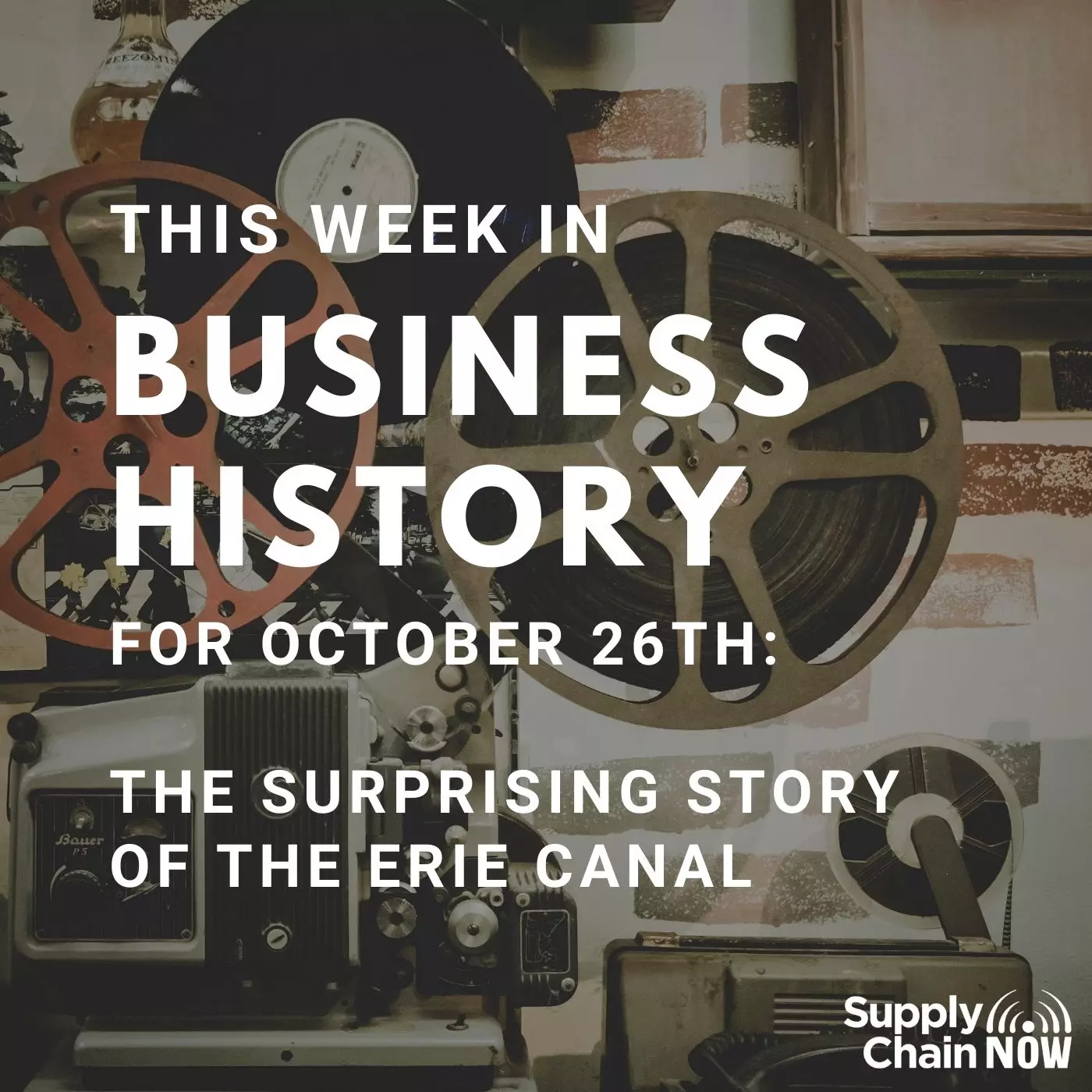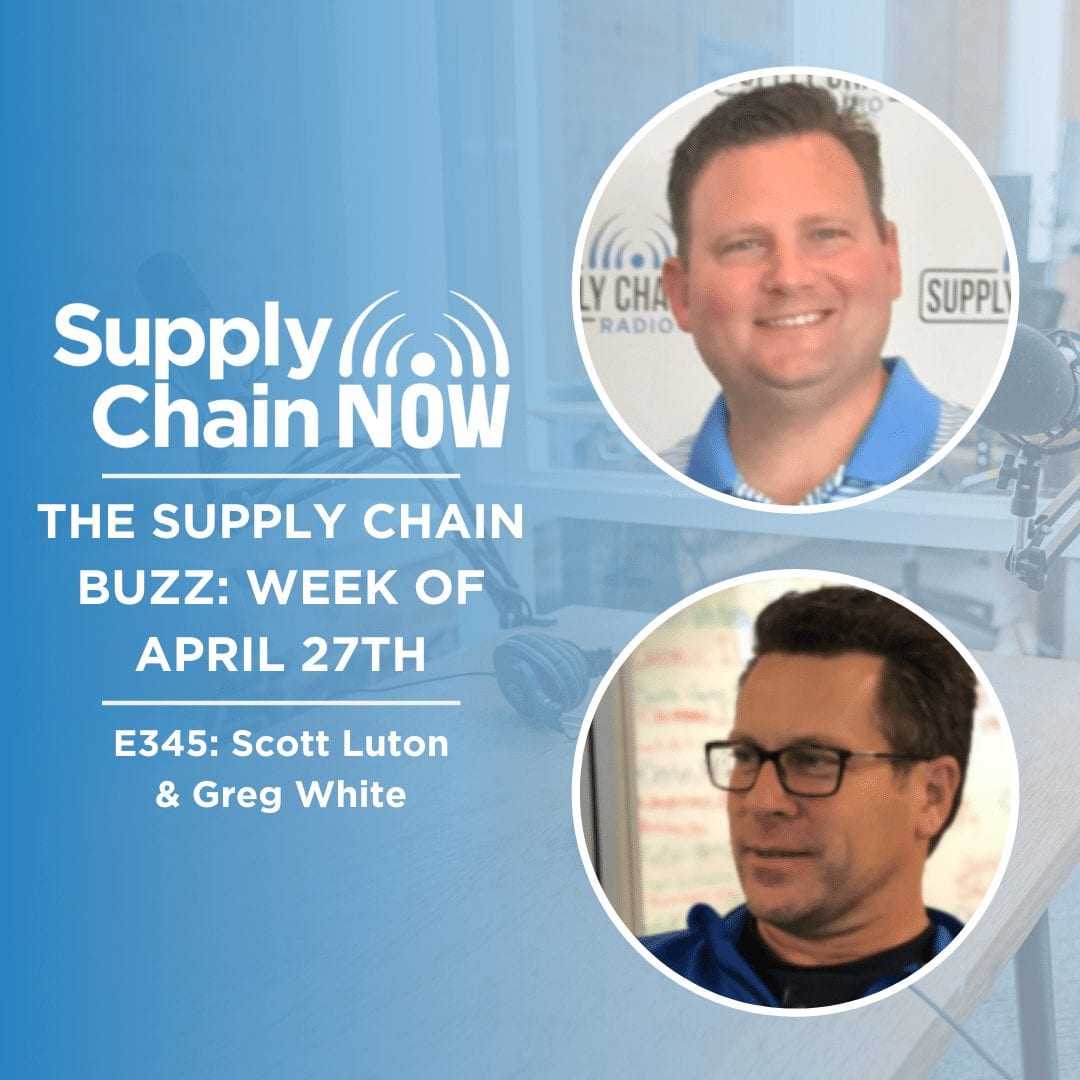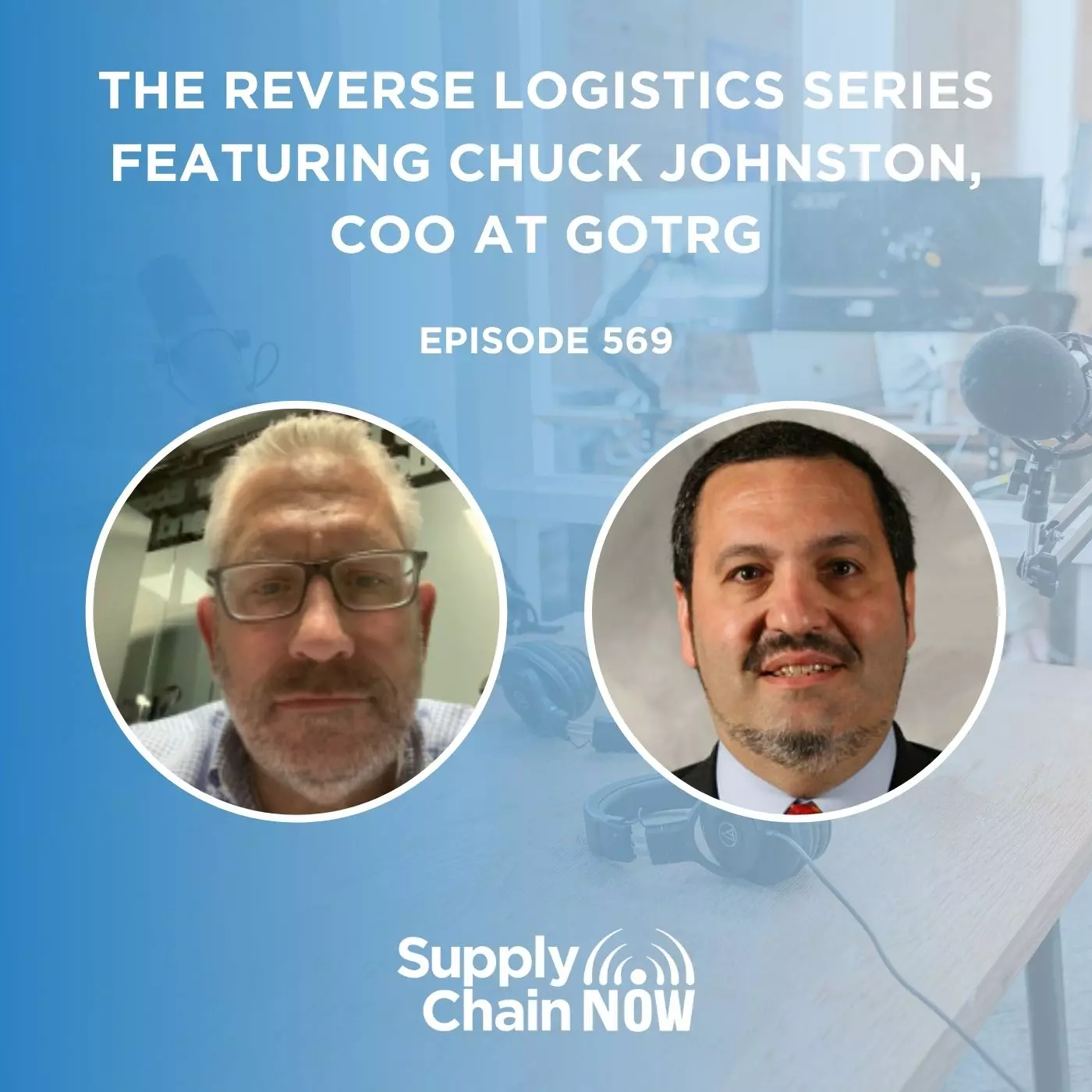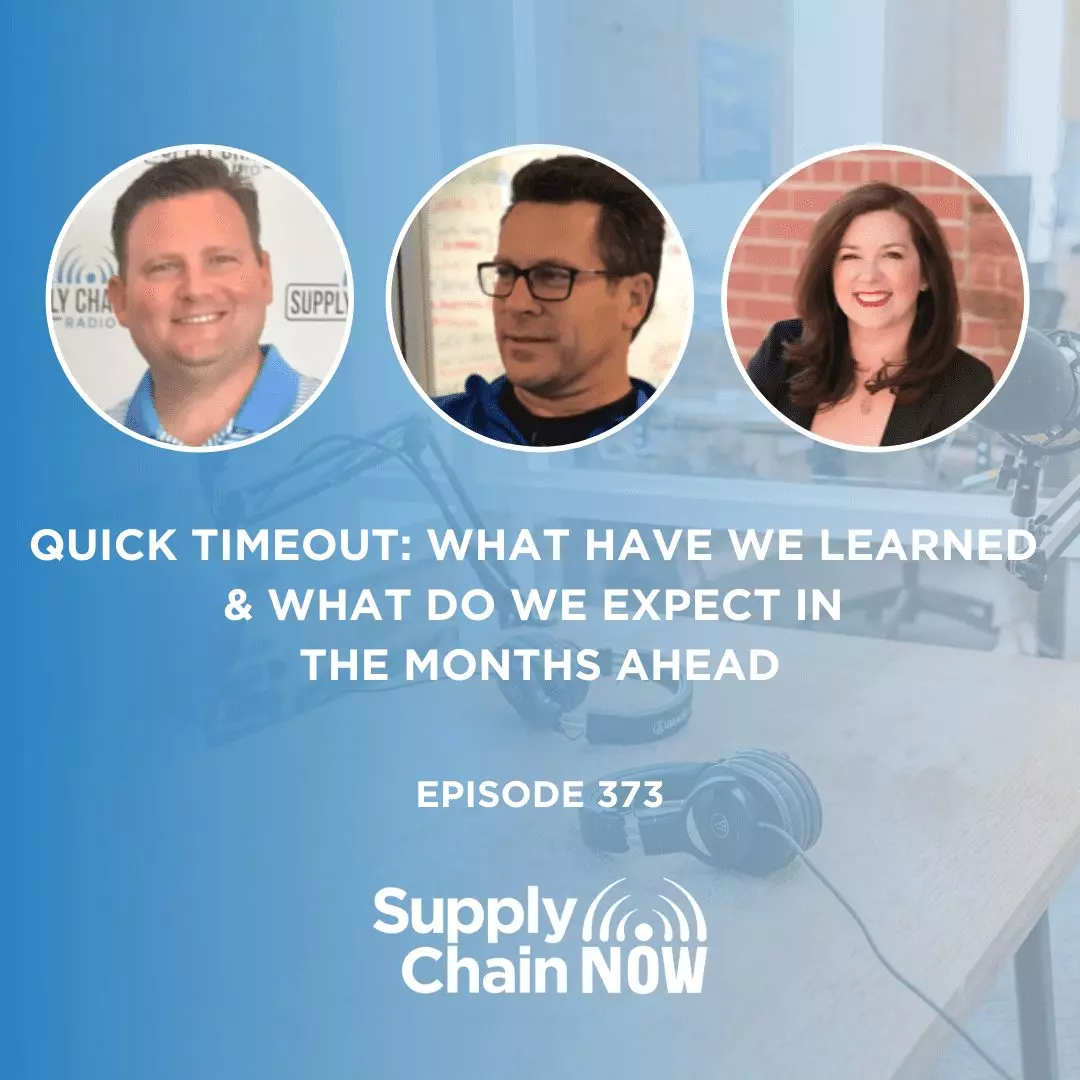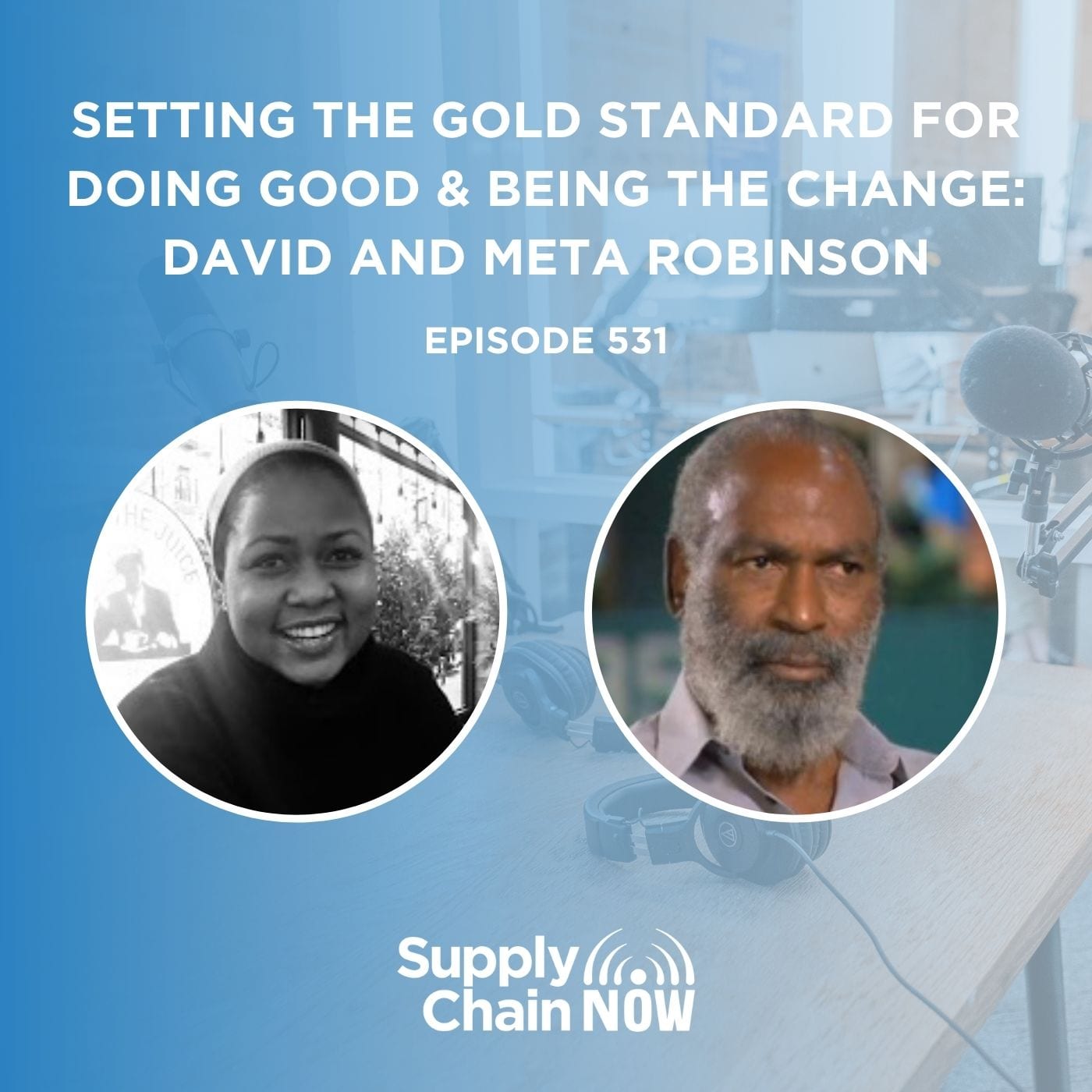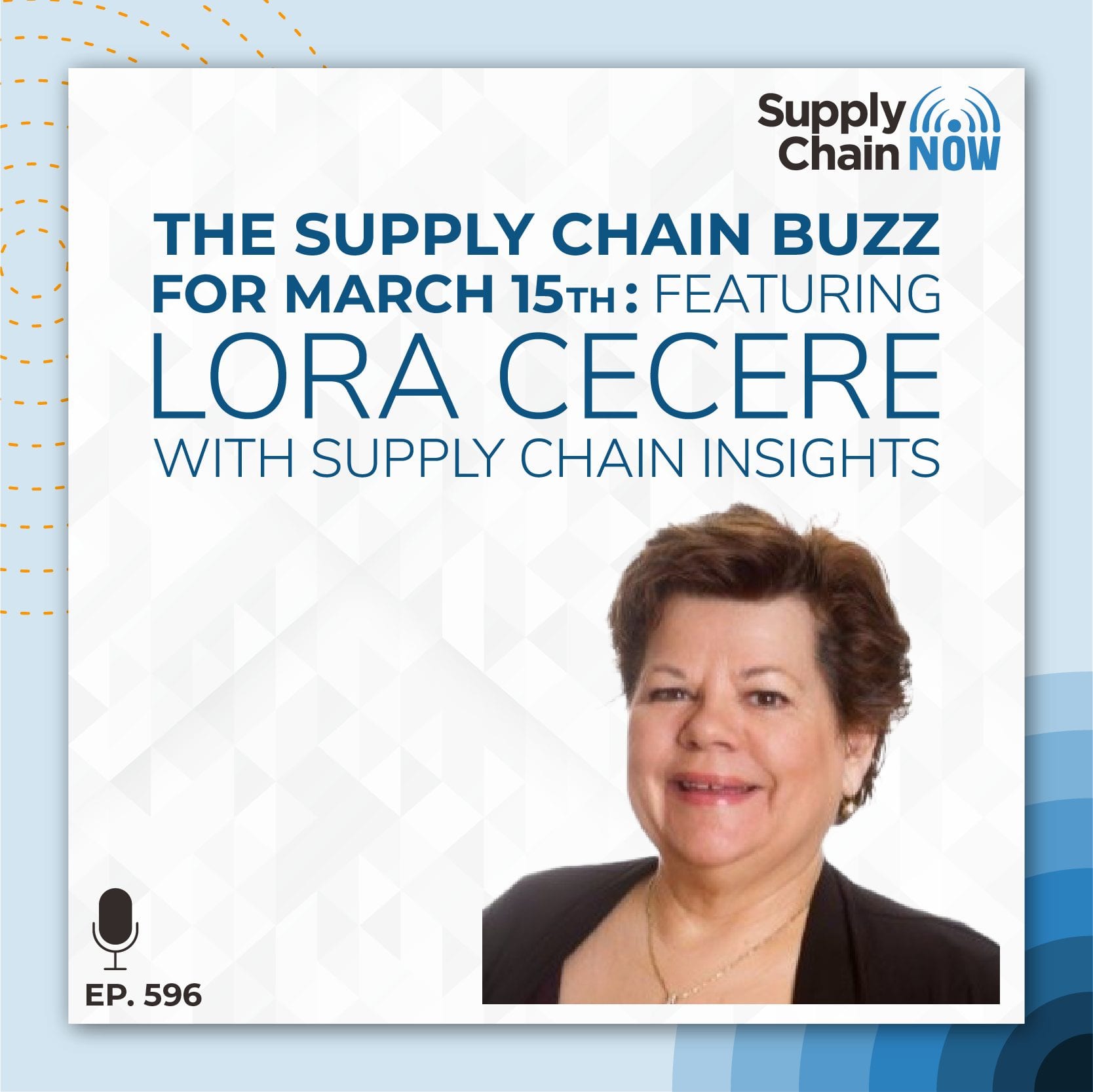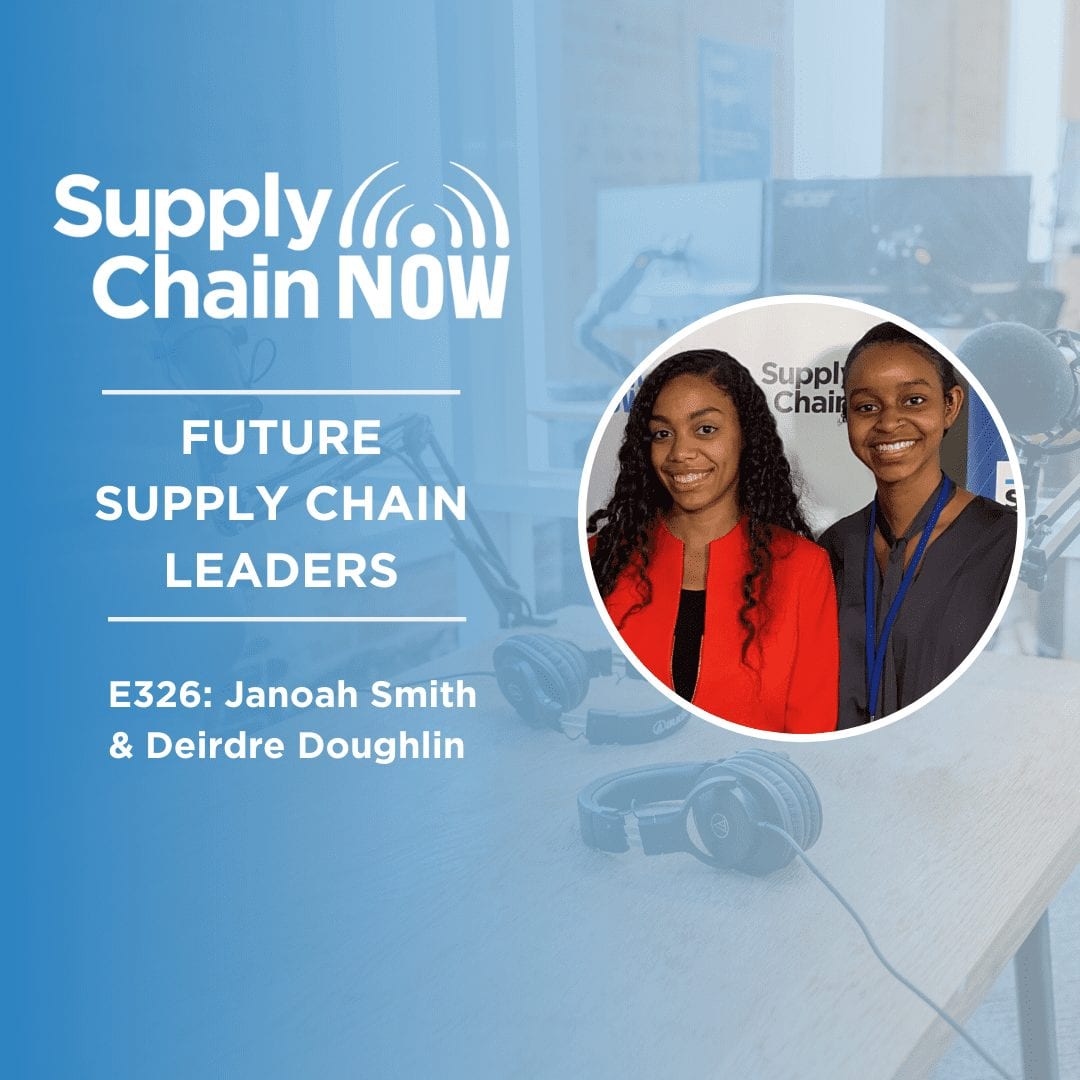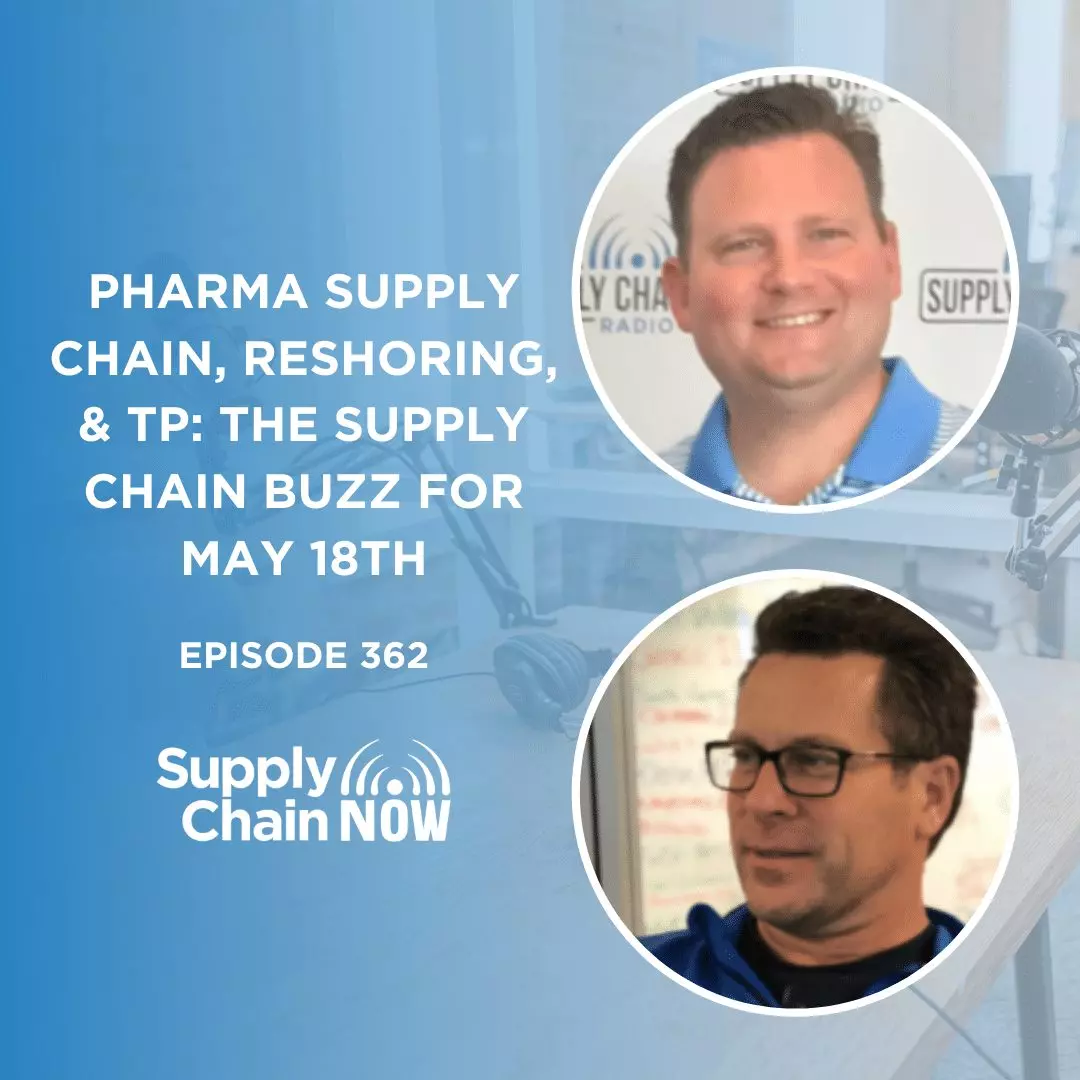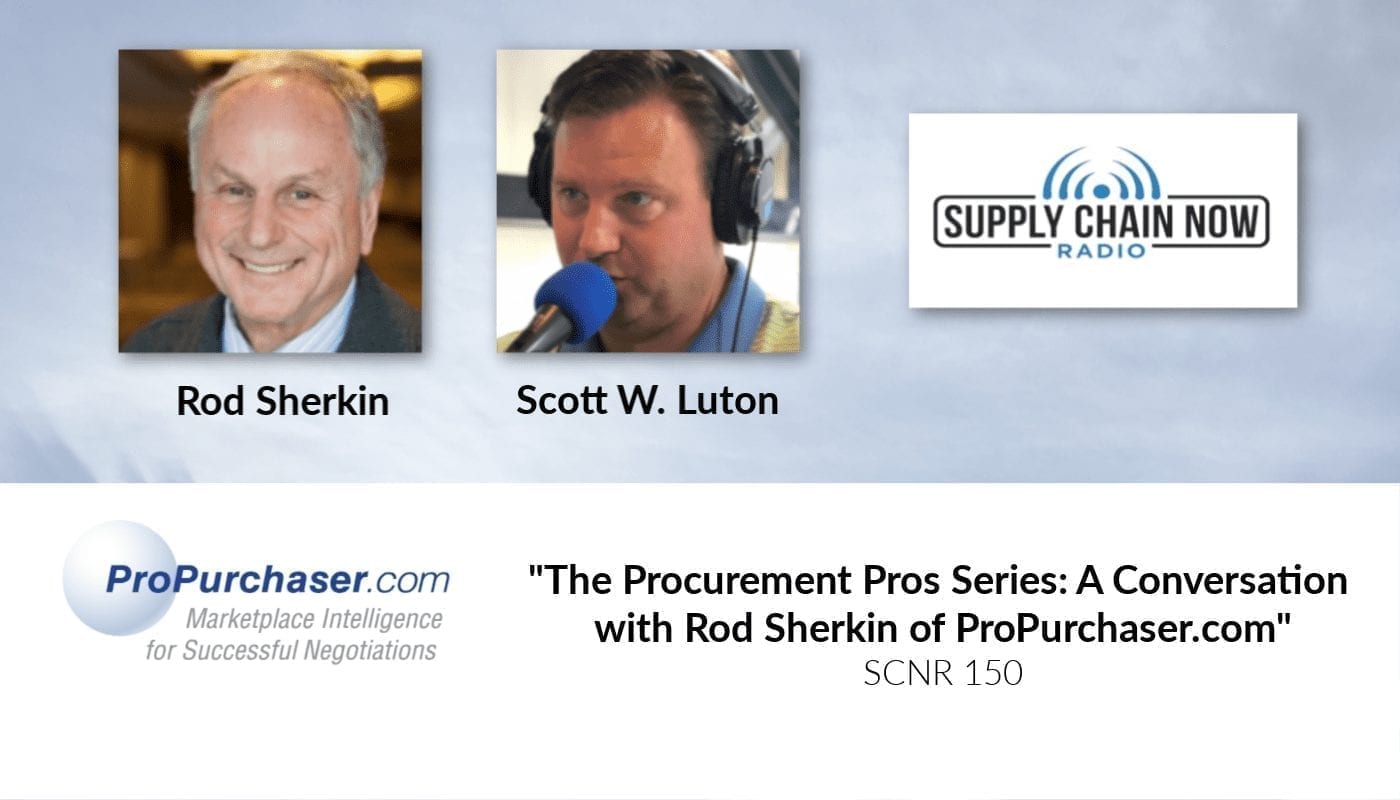
Episode Summary
Scott Luton welcomes Rod Sherkin, president and founder of ProPurchaser.com for the first of the new Procurement Pros Series.
Episode Transcript
[00:00:00] It’s time for Supply Chain Now Radio Broadcasting live from the supply chain capital of the country. Atlanta, Georgia Supply Chain Now Radio spotlights the best in all things supply chain the people, the technologies, the best practices and the critical issues of the day. And now here are your hosts.
[00:00:30] Good afternoon, Scott Luton here with you of Supply Chain Now Radio. Welcome back to the show. Busy week here in the supply chain city. But I’ll tell you, we are really excited about today’s episode where we’re going be talking a lot about procurement, a vital element of the end to end supply chain. In fact, this is kicking off a new series, Procurement Pro’s series. We’ll see if the name kind of evolves a bit, but you’re in for a treat. We’re going to be interviewing a real supply chain procurement pro, Mr. Rod Churkin. And more on that in just a minute. A quick programming note. Like all of our series on Supply Chain Now Radio, you can find our replays on a variety of channels, Apple, podcasts, SoundCloud, Spotify and wherever else you get your podcast. As always, we’d love to have you subscribe. So don’t miss anything. Supply Chain Now Radio radio is proudly brought to you by variety sponsors, including the effect of syndicate talent stream, VeriSign and supply chain real estate. Dot com and several other leading organizations. Be sure to check out the show notes to learn more about our valuable sponsors. OK, so let’s welcome in our featured guest today, Mr. Roger Cohen, president of Pro Purchaser dot com Ron.
[00:01:37] Hey, knowing your fine, Scott, how are you?
[00:01:39] I’m doing fantastic. It’s great to reconnect with you. I think this is a we’ve got a couple projects under our belt. And I always enjoy each of our our conversations as we pick your brain a bit and what’s going on and splashing.
[00:01:52] We are, too. All right. So on this first episode, I want to I want to take some time for our audience and afford our audience the opportunity to get, you know, get to know you a little bit better.
[00:02:04] So, Rod, for starters, tell us about where you’re from and maybe some of your favorite memories growing up.
[00:02:11] Well, I’m from Toronto, the home of the Raptors. That’s right. And NBA champs. We’re all very proud of the Raptors.
[00:02:20] But we didn’t always have a basketball team in Toronto. So we used to watch the NBA from afar and always had an American team for a favorite. But now I’ve got a Canadian team. So, yeah. Toronto based. Went to school here in Toronto. My favorite memories. Well, we used to play hockey in the winter ice hockey. And in those days it was a little colder than it is now. And remember, after school put my skates on every night and going up to the rink. All they had to do then was to just take a fire hose and spray the back of the school year heard. And before we knew it, we had an ice rink. And as one of the ice to go fishing with my dad. My dad was an avid fisherman. He was a baker. And so he was used to getting up at 2:00 and 3:00 in the morning to get the east started and get the the, you know, the first loaves in the oven. So when we went fishing, he didn’t didn’t change his patterns. He used to drag me out of bed at 2:00 and 3:00 in the morning. But they were great memories going up to creeks and rivers and, you know, learning how to fish. And I guess my more recently, I still fish usually out of a canoe in kind of remote areas of Canada, as you know, where I don’t have a lot of people here. But we get a lot of land. So if you go north of Toronto, not too far, two or three hours, you can kind of be in lakes and rivers. So I take my canoe up easily with a buddy or two and we do some fishing and camp. And so those are kind of my favorite memories.
[00:03:41] What kind of fish you catch these days?
[00:03:43] Well, I try to catch while I pick roll, but usually I went out with bass and that’s fine because they’re all good eatin. So. And so it’s interesting, you know, in the old days, you’d try to catch the biggest fish you could. And now the big fish, you throw them back because they’re the breeders and you’re supposed to throw the big ones back and the little ones and kind of catch the medium. So it’s getting tougher to find good fish to catch up like you’re a sustainable fisherman.
[00:04:08] Wow. I think the fish. Thanks a lot, though.
[00:04:16] All right. So let’s talk about school and formal education. Where do you go? You mentioned you went to school right there in Toronto.
[00:04:22] Where do you have the University of Toronto majored in engineering? I’m actually an industrial engineer by training. You know, first job at a school was with IBM here in Canada. I didn’t like it. Got into it and realized that I just didn’t want to be industrial engineer. I didn’t like being on the floor telling other people how to do their jobs. They first of all, I didn’t know how to do their jobs. They do it better than I did. And you certainly weren’t, you know, the favorite person in the factory when you went around telling people have been doing the same thing for 20 or 30 years. You know how to you know, how to build a machine better. So I got out of that. And my first real job, I guess, was that I enjoyed after a couple of years of IBM was with a big consulting firm, part of KPMG now.
[00:05:07] And I did a variety of projects there. But maybe five or six years into it, I wound up doing a job for Green Giant. This is before Pillsbury and Green Giant were actually merged and they became a client. And so after maybe two or three projects with them, they made me a job offer to become the director of materials management and salary giant at Green Giant.
[00:05:34] And what happened was the president of the company and it’s his long time ago. This is in the 80s, had just gone to a seminar put on by one of the consulting firms talking about this new concept of materials management. Now, we think we call a supply chain today, but it’s the same thing. But back then, the concept of combining production planning, inventory control, transportation, purchasing order felt that that was brand new people. You know, all those functions report into operations in those days. So breaking those functions out and having them report separately into the president as kind of an equal to the manufacturing of V.P. was was a new concept. They hired me. I was very fortunate to become the director of materials management. And I did that for about eight years eventually. It didn’t take long before Green Giant was kind of acquired by Pillsbury. So it became Pillsbury Green Giant. But I stayed in Pillsbury Green Giant here in Canada and worked my way up eventually to vice president. So let’s kind of how I got into supply chain through consulting and, you know, maybe one of the first formal positions ever created in Canada, that that was a supply chain, raw materials manage. It was with the Green Giant because of the present engine Ruzicka, who thought it was a good idea. My my. Good luck.
[00:07:00] Definitely. So let’s go back for a second, because you mentioned that first job where you’re kind of disengaged, mate, might be a might be an accurate statement.
[00:07:09] And, you know, if you think of if you look at any of the studies out there that analyze the workforce these days, a wide majority of employees or are disengaged. These days, they don’t like what they do. What was any big lessons learned during that early that basically your first job is what? Anything stick out?
[00:07:32] Well, I certainly think that’s a great question. First, I didn’t actually like it. It wasn’t intellectually challenging. I wasn’t creative job. I went into engineering because I’m pretty good at math and science and I didn’t know really what else to do. And so I was fairly quick to is only four years. And after four years, you could get a job. It wasn’t like getting a degree in psychology first and then deciding what you want to be. So it was a quick path to a job and really like school. My dad was okay. I knew I had to go to school, but it wasn’t my favorite place to be. So I took industrial engineering because I’ve always been interested in processes in factories and you know how things are made. But when I actually got into the job, I realized my job was very repetitive, very unimaginative, and basically watching somebody, you know, put a screw into a hole and then a lock washer and figuring out how to do that even smarter and better was just not my cup of tea. So I guess the lesson there was find something that actually excites you so that you actually enjoy going to work. And I certainly didn’t enjoy that. That was I guess the lesson I learned is be careful what you do for a living.
[00:08:46] What we were. So we were just talking about this, an earlier podcast with a member of our Atlanta community here. And we were talking about really following your passion and how important that is, not just in your career, but in the days, you know, in your schooling as you’re getting prepared to get into that, your career or industry or the business world, right.
[00:09:08] Right. And so if you if you don’t if you aren’t going to like industrial engineering, I guess the lesson learned there is we gonna choose a different path.
[00:09:16] Yes. So I have. So I thought, well, I’ll get into consulting because Lisa’s a variety of jobs. And I always figured that you had to be fairly creative to be a consultant. Nobody’s gonna hire you to do solve a problem for them unless they expect you to have good ideas.
[00:09:33] And I thought also that the peers, as you know, people I reported to my superiors would be people I could learn from. So and and it worked out really well. I had seven and a half years with the consulting firm and they were looking back at it. It was a really good move.
[00:09:49] Now, that’s what really teed you up for that for all of your years in supply chain, including set me on the path for what you do now at pro purchaser.
[00:09:59] In many ways, I’m absolutely because what pro purchaser does is takes obviously my experience as a 15 years and supply chain running departments and adds the consulting aspect because repurchase is more than just numbers and cyberspace. We actually work with our our members and it’s kind of mild consulting. And I guess if people have issues and questions, they know they can count on us to to at least talk to them about.
[00:10:26] Absolutely.
[00:10:26] And we’re gonna we’re gonna dive more la more into the pro purchaser platform towards the end of our conversation day, as you were kind of you described your your supply chain journey there and how you ended up serving as vice president, materials management for Pillsbury, Canada. That’s an incredible accomplishment in and of itself. When you think about some of the things your team was able to get done and what I’m sure was a very as as in most production environments, there’s there’s always something you can be doing putting out fires or taking care of customers or getting stuff done. What were some what was one of your team’s accomplishments that you looked back at and really proud of?
[00:11:07] I think there’s so many to choose from. I mean, that I’m proud of we didn’t we weren’t always heroes. We didn’t always succeed. But, you know, Canada as a as you know, is a really big country. And so transportation is a huge issue. So we have cities like Vancouver on the West Coast, and then you travel a thousand miles and you get to Edmonton and then you go another thousand miles, you get to Winnipeg and you know, when it picks fifteen hundred miles from Toronto and Montreal. So, you know, in 4000 mile stretch, we probably have one tenth the population of the United States.
[00:11:40] So figuring out how to keep transportation costs down is it was huge for us. And so the easiest way, of course, is to have one warehouse and ship from one where. Goes to all the customers. But the problem was that you. The lead times were two too long. So we had this challenge. We needed to be able to serve all the customers in a timely fashion. We wanted to keep the costs down for ourselves and also for our customers. We didn’t. So the first thing we did is we warehoused everywhere. So we had a warehouse in Winnipeg and a warehouse at Edmonton warehouse in Halifax. And it was extremely expensive. And we had not just stuff canned food like giant corn, but we also had frozen food like the Pillsbury products. And they actually we got into frozen vegetables back in a big way in the 80s. So this was very expensive warehousing. So one of our projects was to convince our customers on the frozen side because I was so expensive to warehouse and ship to to accept shipments directly from our one major warehouse in near Detroit and Windsor, Ontario, across the river from Detroit.
[00:12:47] And do it in a way that they could live with the lead time. So we made a deal with the railway. That’s when piggyback railway was starting. And we could. Nothing would take longer than five days, even Vancouver. Then we personally went out, met with all our customers, went out with our sales V.P. and said, look, we’re going to we’d like to close to where else in Vancouver. First reaction was, oh, you can’t do that.
[00:13:11] You know, we need we need stuff.
[00:13:13] The next day we said, well, let’s try it. We’ll ship directly from Toronto or from Windsor if it doesn’t work. We’re not going to shut the warehouse down or leave it open. And if it doesn’t work, you got it there. We did the same thing in Manitoba, in Winnipeg. We did the same thing in Toronto. And within six months, we were able to shut all the warehouses down our customer service levels. The order fill rates went up because, of course, one big warehouse is always better than having a bunch of small was much easier to keep your your inventory levels where they need to be. We just trained our customers to order a couple of days earlier than they normally would. It wasn’t a big deal, but we kind of nurtured that. And we did that all with our own staff at our central office. And we wound up saving about 30 percent of our distribution costs on frozen food product by doing that. And the customers never looked back. In fact, if you went to the customers today, I think they probably didn’t realize we even used to have a warehousing system across Canada. We learned to do without it.
[00:14:13] Wow, man, that was a huge project.
[00:14:16] Well, it took about six months. Yeah, it was a pretty big one. Yeah, it was. It was a good one, too. They didn’t always work out that well, but that one worked out well.
[00:14:23] So on that note, Rod, clearly that was a huge compliment. I think you said 30 percent of distribution cost is what the bottom line savings there is. That’s fantastic. So speaking of sometimes that where things didn’t go well, what’s looking back at your time there or just in general with all of your supply chain work? What’s one thing that you might would do different? Looking back?
[00:14:46] Looking back, I don’t think I’ve managed that kind of a personal thing. I didn’t think of training and bringing my staff along as much as I should have. It’s not that I was a glory hound, maybe a little bit, but it was more that I thought, well, if you know, this this project are just talking about, so, you know, V.P. of sales would go out with me and we would talk to the head buyer for some of these big grocery chains. And it never occurred to me to bring along, say, one of my managers, somebody, even if they didn’t do a lot of talking, at least they get to see how it works. So that when I left or if I wanted to get promoted, you know, I’d leave behind a legacy of well-trained, competent people. So if I look back, I don’t think I was inclusive enough. And with my team, I don’t think I gave people enough opportunity to develop.
[00:15:38] I tended to worry about getting things done right. And was kind of a little egocentric thinking, well, if it’s not better, do it myself or we’ll get done. Right. And looking back, that’s wrong. Elephant. You know, when you surround yourself with bright people, they may not get everything right the first time, but frankly, nobody does. But if you surround yourself with bright people and give them opportunities, then you wind up in a much better place. And of course, so do they. So that when I look back at my career, as you know, before it became an entrepreneur, that would be, I guess, biggest lesson. I think that’s the thing I would probably do differently if I had a chance to do it again.
[00:16:14] You know, we all have them right. Looking back, I think a reflection is so powerful. And I think these days there’s such a in this war for talent, Rod, that we’re in where it’s so tough to find the right talent. I think there’s even a bigger emphasis and a bigger welcome emphasis on developing the talent you do have. Right. So they can do more and more. Yeah. But I appreciate you taking taking the time to answer that question is always a tough question. I really appreciate taking it, taking a swing at it. So let’s switch gears now kind of over to the world of procurement, which is is become it seems like. Become so much more important and not use we’re relevant, but so much more vital. And it’s gotten so much more attention, it seems. Is that kind of been your observation as well?
[00:17:03] It’s so hard to have a perception. I mean, looking back at my career, I was probably got to know the procurement functions of maybe 10 companies or 15. You don’t.
[00:17:14] It’s hard to have a worldview. I I’m not the answer is I’m not really sure. Scott, it certainly feels that way. You know, this certainly when you when you talk with the associations, whether it’s, you know, ESM or Association for Supply Chain Management, they’re certainly in their opinion and they’re probably right. There is a growing awareness among senior management of the importance of supply chain. But I don’t know if I’m really qualified. I haven’t seen enough. I haven’t seen one hundred companies. So I really don’t know what it was like 20 years ago and what it’s like today. But certainly our ability to be better at our jobs as supply chain professionals has improved. And, you know, that’s clearly because the information we have access to is so much different. In fact, when I look back in the 80s when I was a negotiator or looked at my staff when they negotiated, we really didn’t know where to find information that would help us either agree or disagree with the sales reps. It was, you know, sales rep would come in and they’d say, oh, jeez, I’ve got to charge you more for the cans. This is with Green Giant. And they’d say, you know, it’s not us, it’s it’s it’s U.S. Steel.
[00:18:27] They’re raising the price, you know, a deal. And, you know, I always I’m not I’m not trying to. I believe we’re just trying to stay whole. We’re just trying to, you know, stay in business.
[00:18:39] And we really wish we didn’t have to do that. And we’d actually get letters. They’d actually remember the Continental can. They were selling us cans back then. They sent us the letter from their steel supplier showing what the increase was. And I have no reason to think that wasn’t true up here. It was a legitimate letter. So it was always they were trying to say it was never that they were trying to make more money or they were being greedy or their shareholders were pressuring them for higher returns, which probably was all true. It was that the boogey man was there was always their supplier raising the price on them and there was no way to really check it. And of course, that’s all changed. And maybe we’ll get into that. A lot has changed.
[00:19:20] And you come in 10 minutes ago just about the wealth of information and data that we have at our fingertips. It is just amazing. We did it. We had a conversation this week, a dedicated episode around the main planning and the wealth of attention is really in that space these days, which is really fueled by our ability to measure demand in such a a more of a known and quantifiable way than ever before. Absolutely. Yes, absolutely. And similarly, in the procurement space, which we’re going to touch on, there is it’s just it’s incredible, this information age, we’re living in what’s at our fingertips. So if you could. So. So moving past kind of how hot or how relevant or how much more visible or how much more attention to procurement space to get. If she could speak to we’ve already kind of identified access to information as one of the biggest changes that has taken place to procurement space over the last couple of decades. But what else have you seen in terms of change in this in the procurement function?
[00:20:21] When I look back since 30 years, isn’t that it’s strange to talk that way, but I guess it’s true.
[00:20:28] I look at the people who were in procurement is going to say, I don’t want this to sound in any way that I’m, you know, saying saying mean things. But the people in procurement weren’t the people who were likely to become president of the company. It wasn’t paramount or supply chain or whatever we called it back then wasn’t a rung on the ladder of success. You know, the presidents of companies were never people who had gone through supply chain. That may have been marketers. They might have been financial people. They might have been even manufacturing people. But back then, it was almost a backwater. People wound up in purchasing because maybe they screwed up at their other job and they didn’t want to let him go. So we’ll put old John in purchasing or Sally. So it and people knew it. It was it wasn’t respected.
[00:21:21] It wasn’t. We’re kind of the go getters way. And it was kind of where you went out to pasture and that’s back in the 80s. Now, if I look now at a modern materials management or supply chain department, it’s not like that at all. First of all, most people are young and Internet savvy. It certainly isn’t a place anymore where people go to retire. It’s a place where people go to get things done. And it’s becoming a place where you can. Spend some time on your own. It can be a legitimate rung on the ladder to the top. So I think that’s kind of the biggest change I’ve seen is that it’s attracting bright, bright, intelligent people. People see it now as a career is being taught now in colleges and universities. The associations are with their designations are starting to gain respectability in the eyes of senior management. So you have if some young person came to me and said, hey, I’m not sure what I want to do. And I’d say, well, have you thought about supply chain?
[00:22:26] If you thought about learning how to negotiate? You thought about using. And it’s interesting. And now you can point to lots of success stories. And, you know, 20 or 30 years ago, you wouldn’t have been able to say that to people. You wouldn’t be able to say, well, you know, have you thought about being a purchaser? Well, no, I want to succeed. I want to be the president one day. Well, today you can be a supply chain professional and wind up the president, I think, anyway, where she couldn’t maybe 20 or 30 years, I believe.
[00:22:53] And I’ve heard keynote after keynote, practitioner after practitioner, business leader after business leader all talk about how this industry, the and supply chain industry competes for top talent in ways that it never has done before. Not that we didn’t have top talent in the industry and recent past decades, but that’s really interesting and welcome development to what’s going on in supply chain.
[00:23:19] Yeah, for sure. Absolutely. I agree.
[00:23:22] It really I mean, it makes everybody better. All right. So let’s talk about you. Aren’t you are already kind of spoken to this next question, as you are spoken to kind of not only how the workforce values the procurement function more today than before, but at the same time, organizations and leadership structures are valuing that function more today than in previous decades. Do you think that is the global business environment?
[00:23:52] One of the biggest reasons you think for that high margin, yes, global business environment increases competition because you’ve got to compete not just with your domestic competitors, but with international competitors. So that puts margin pressure on it becoming low cost producer uptime of manufacturers or distributors or even retailers. You’ve got to be low cost. One of the low cost providers or you just won’t be in business. So you look at a panel, say, for the average manufacturer, if you look at thought of it as a pie chart. The largest piece of pie would be what people what the company spends on stuff. They buy the raw materials and services and components and finished goods. In most manufacturing environments account for anywhere from a third to a half of the PNM. So if it’s one hundred million dollar company, they’re spending, you know, 30 to 50 million dollars on stuff that they have to procure. And so if you’re not doing that well, you’re you’re dead in the water. You can’t be a low cost producer. So I think, yeah, globalization is causing prices to drop. I mean, inflation has been tame for so long now. It’s because people are getting better and better at manufacturing things and distributing them and warehousing them and transporting them. And all of that means that you’ve got to be very, very good at keeping your costs down.
[00:25:18] Absolutely. All right. So shifting gears once more, I really, you know, given all of your experience and in doing it as a as a supply chain practitioner and leader and then, of course, all the time leading property TRACON, which has been a really neat platform to get to know Orient over the over the last year or so and all the organizations you’re helping by providing insights and data and in opportunities to add to the bottom line while you’re transparently kind of managing your supplier relationship, just a really interesting platform. But before we talk about properties, right, I really want to think about think about 2020 and beyond. Right. The what’s on the horizon? What do you think are, let’s say, three things that procurement professionals really need to be good at in the next few years ahead?
[00:26:09] Well, certainly they have to be quantitative. They have to be analytical and to be able to track and follow the cost trends for their suppliers, key inputs.
[00:26:19] And I’m talking about people who work in manufacturing environments or distributors or retailers. So you can’t kind of wait to be surprised when you find out the price of steel has gone up 20 percent and all of a sudden all your steel components are 10 percent higher than where before. You’ve kind of got to be on top of that and following it. And you need to you need to not only understand what’s happening to these raw materials that are affecting your suppliers costs, but you’ve also got to be able to quantify how the changes to their costs should affect your. Prices, because that’s how you need. I think you need to negotiate. Now you say, look, I recognize your, you know, plastic costs are up or your labor costs are up or you name it. I calculate that a 10 percent increase in plastic resin is a 7 percent increase in the part I buy. Is that right? And if it’s not right, it get into a dialogue with your suppliers so that you understand that only you’re tracking which way. It’s easy now. Nowadays with the internet, it’s pretty easy to track. Ninety nine percent of all the inputs into the modern economy.
[00:27:24] They because they’re mainly commodities, everything. If you look around, everything is either made out of wood or paper or plastic or steel or or or there’s energy, of course, and there’s transportation. But it’s all quantifiable now. So that’s not the challenge that challenges is keeping on top of it and then converting that knowledge into actionable information, which is, hey, mister supplier, I want you to remain whole. I’m not trying to skinnier margins. I’m not trying to, you know, make it. This isn’t a zero sum game. I’m not taking anything away. I want you to be whole. I want you to make money. I want you to be for us. My supply chain requires that you make money and that you’re healthy. But it also requires that I get things that absolutely the best price. And there’s got to be a way that we can both have what we want and here’s how we do it. So let’s come up with kind of a formula. You know, every time steel goes up 10 percent, I’ll give you a 6 percent more. Every time it goes down 10 percent, you knock six percent off. Is that fair? Does that cover your margins?
[00:28:22] So that’s that’s one I think maybe the key kind of trade or ability that supply chain professionals, those who negotiate pricing at least need to do to have they need to have this ability. They need to track the suppliers costs and be able convert those those numbers in to actual negotiating figures to be able to go to a supplier, understand enough about their cost structure. Have a good enough relationship with sales reps and whoever else in the organization they need to know and come up with ways that both parties can actually thrive. Nobody’s taking advantage of anyone else. So that’s the first thing following cost trends and converting those cost turns into which interim query sit right on that.
[00:29:02] You’re talking about both thriving and I think I’ve always thought of, you know, successful supplier customer relationships or even successful negotiation is just that. Both parties winning, right?
[00:29:17] Yeah, not everybody operates that way. And there are lots of cases of, you know, people who view it as like a tennis match. You can only make a point if the other side loses. But I kind of look at it more like a I don’t like a golf game. You know, someone else can make a birdie and you can make a par and you’re both how big that is. Right.
[00:29:38] So it’s it’s not a zero sum game. It’s not. It doesn’t have to be confrontational now. There’s lots of examples in real life where that happens. A lot of suppliers have a monopoly or a near monopoly. And maybe the sales reps, it’s not their fault. They’ve got marching orders from their boss. You know, get a 10 percent increase in their paycheck. Depends on it. And, you know, it’s it’s not it’s easy to talk about win win. And it’s not always as easy to implement it. Sometimes you have to be patient. Maybe you have to find your suppliers. Maybe you have to work with the sales rep, provide the sales rep with information and ammunition. That explains to the sales reps management why you you know, you’re so reluctant to take this increase, because the facts and the data show that actually there’s no reason for it is just a margin grab. And then once your sales rep can show that to their boss, all of a sudden the boss, first of all, understands the sales reps dilemma and also realizes that by insisting on this increase, when there’s no justification for it, it’s actually putting the company’s reputation at stake.
[00:30:39] And a smart senior manager will understand that, you know, we all live off our reputations. And you can’t if you sully a company’s reputation, if you come across as greedy and hypocritical and kind of. Because your position may be forced an increase. You get to do that for a limited amount of time because you’re going to sully the relation, the image of the company. And in the long run, that’s bad for business, bad for everyone’s business, because we we all need to protect our images and reputation. So, yeah, win win is great and maybe you don’t get it in the short run all the time, depending on the dynamics and the suppliers organization. But if you if you’re persistent and you use kind of logic and data to support your arguments and of course, give and take, when the costs go up, you’re actually going to pay more. So it’s not as if you’re being unreasonable, then most suppliers organizations eventually respond. And if they don’t, then that’s a real tell you you need to find a new supplier.
[00:31:39] So you are tackling before we went down that when Wynn Avenue, you were tackling the three things that you believe that procurement professionals really need to be good at in the years ahead. And no.
[00:31:53] You mentioned a person was, of course, following the cost trends for their suppliers, key inputs. You’d alluded to how how that so much more visible these days than in years past. What else do you think round out the top three?
[00:32:07] I think then once you’ve got that one, too. You’ve got your sources and you understand to do that. Then I think you’d take the emotion out of the negotiating you. I think you need to learn how to negotiate in writing. You communicate the data that you’ve gathered and your findings. You know this. Let’s use the stealing. Any of steels up 10 percent. I think a 6 percent increase for your passengers that say you’re buying steel fasteners is appropriate. You do it in writing. You give it to your sales rep. You ask the sales rep to present this to their management. They they in turn, they almost become maybe not an advocate for your cause, but they become an ally because you’re giving them information that helps them explain your position. SALES reps want to close. That’s how they get paid. If if price is an obstacle, then they’re going to want to remove it. So you’re if by arming them with this data in a logical, transparent way, doing that in writing, you’re actually helping your sales rep help himself or herself working with the management. So learning how to kind of, you know, you don’t need to kind of use of force your personality to convince anybody of anything. I think you kind of quietly and diligently do your research.
[00:33:16] You and then you then you learn how to do your negotiating writing. So that’s the second kind of trade, I think, or idea or or skill that someone needs. And then the third one is learn how to become a preferred customer. I think this idea that everything comes by getting concessions from the supplier is is only one sided. If you learn enough about your suppliers businesses and that maybe means you are doing a plant tour too and really getting into how they make their profit. And you know what? You know, what is it you can do to be a better customer? I used to ask sales reps to sometimes take, you know, set up plant tours and then you’d meet the operations people or engineers or production planning people. You ask a production planning person what you could do to be a better customer. I mean, they want to hug you. It just melts their hearts because there’s always stuff we’re doing that we don’t even realize and we’re the customer. So they’re not going to say, you know, stop doing it. But maybe upping your order, 10 percent fills a pallet up or maybe loosening a spec slightly instead of a tenth of the thatll make it a half instead of a half a tenth.
[00:34:22] Make it a tenth of a how that means working with your engineers because engineers tend to really take specs and being an engineer, I’m allowed to say that, but often they’re too tight. So eliciting a spec lots of times, all of a sudden they can run their machines faster. They’re scrap piles diminish, their quality goes up because they don’t know. They don’t have to reject as many finished parts. So learning to become a preferred customer. However, that is is a really important skill for the future because it’s the preferred customers with the relationships, the professional relationships, the win win relationships with their suppliers are the ones are going to be successful. They’re going to be the low cost producers because they’re going to have low cost producing suppliers and the whole supply chain will be sustainable and efficient. So those those are the three things, the following the cost trends, doing your negotiating and writing becoming objective is, I guess, what I’m trying to say.
[00:35:17] And then and then spend your time being empathetic, spend your time becoming the preferred customer and learning and having a much deeper relationship than just buyer seller like getting getting your people, your engineers, your operations, people working with your key prefers. Yeah, I can do with every supplier, but your preferred suppliers, the ones where you’re big dollars are being spent having that kind of broader relationship and having a back and forth kind of exchange of ideas and changes in behavior. That’s that’s where the gold is, I think, and that’s where the success is going to come in the future.
[00:35:50] I’m with you completely agree with you. I think you maybe to start with tech 80 20 approach and then far. What’s an 80 20? Is that where you’re 80 is located right in right now? Right. You know, maybe take a quick assessment of how strategic those relationships are and how much more can be done and gained by, you know, becoming that preferred customer and being willing to have some the conversations that that you don’t find in the other transactional relationships right now.
[00:36:17] You’re right. You can’t do with everyone of you. You need to wave to big purchasing department, but you do the old 80 20 and you’ll make Mr. Potato happy at same time.
[00:36:27] Yes. Yes.
[00:36:30] All right. So let’s switch gears here. We’re so pro purchaser. Dot.com is a group that we’ve collaborated a couple times and we’ve really come to enjoy working with you, Rod, and learning about how all the different ways that organizations are improving the bottom line, optimizing supply chain performance. Clearly helping the procurement folks out with pro purchaser platform automatically tracking you’re talking about your suppliers key inputs. I believe your platform that pro or helps track that easily and helps find opportunities at better pricing, especially primarily when the marketplace warrants it. Right.
[00:37:12] We’re arming negotiators. We can’t obviously do their job for them. It’s something everyone has to do. So we’ll say lumber prices are down. We don’t say to people, now go phone your pallet supplier and negotiate a better deal. We expect our members to understand that. So when people sign up what they’re really the they pick and choose a kind of a shopping cart. We call it a tracking bundle, love of materials that they want to track closely. And we have no say in that. Basically, people have to think about it themselves. And sometimes it requires some research. You have to think, well, I buy electric motors, I buy a lot of electric motors. Work goes into an electric motor. It’s not obvious. I mean, there’s a housing and there’s a rotor and there’s other things, intellect. But sometimes, you know what? What do you track, for example, if you buy a lot of electric motors? So once people once our members understand the raw materials that their suppliers need to buy to make the stuff that they’re buying, and then they pick and choose, then they put their tracking bundle together with those raw materials. And it’s a bit of work. It isn’t it is still a you just join pro purchaser and you’re automatically informed. No, you’ve got to actually think about things you buy. You’ve got to do the work. Sometimes it takes a few weeks to set it up properly. But once it’s set up and you start getting the automatic messages like every time a copper moves a significant amount.
[00:38:43] We certainly don’t send out news flashes every time a copper moves, but if it’s significant, it might might affect a transaction that you’re having. It might be significant enough to change a price of something you’re buying, especially if you’re buying a plumbing parts or wiring or cable things that have a lot of copper in it. Then you’ll get an email, but you’ll only get the email if you tell us that’s what you want. So a lot of people think that all you have to do is join anyway. I think it’s true with almost any professional Web site, you only get what you put into it. So if you’re willing to think about the things you buy and, you know, do the Prado thing, the 80 20 thing and, you know, don’t don’t track, you know, you might want to track corrugated packaging, but if you only spend 2 percent of your budget on copper, get it. Maybe you don’t want to do that. But if you do spend a lot of money on things made out of metals or made into plastics and you start tracking those, then a tool like pro purchaser can help you because it alert you to opportunities to reduce costs. And that’s it’s interesting. Just one quick thing. If steels come down quite dramatically since the tariffs went in about a year and a half ago, I think most people know that. So if you buy things made out of steel, your suppliers paying a lot less today than it was, say, a year and a half ago for the steel that he’s using.
[00:39:56] So let’s use fasteners, for example. So if you’re paying a dollar for a bolt year and a half ago, that’s when your supplier is paying a thousand dollars a tonne for steel. Now he’s paying eight hundred dollars a tonne for steel. And if you don’t call them, they’re not going to call you. They’re still going to be charging a buck. You can’t expect them to call. It’s not in their interest to call. In fact, you know, everyone’s in business to make all the money they can. And that’s just the nature of our system. And that’s fine. There’s nothing wrong with it. So it’s really up to the supply chain professional to take the initiative and track the prices, because if you call a supplier and say, hey, how come you’re still charging me a dollar, a bolt, when do you know the price of steel down 20 percent, then they’ve then the sales reps got to be able to explain that. And that starts the ball rolling. You send them the graph, you show them the steels really down. The sales rep takes the graph to their boss and the jig is up. You know, of course, the cost is down. And now that, you know, they don’t want you to know this stuff, but once you know it, they can’t take it away. So once they once the jig is up and the senior management realizes that, OK, I take my hand out of the cookie jar. Their reaction is, is they tell the sales rep, go make a deal.
[00:41:05] Yo, knock it back down to 90 cents for that bolt and do it quickly, because the last thing we want is for other customers to phone us up because they they also realize the cost of steel is down. So they tend to that the supply chain professionals who can track that my experience to track their suppliers costs that a reasonable pay, an increase when it goes up, expect a decrease when it goes down and do it quietly. The ones who get the best deals because it’s in the suppliers interest to kind of contain it. They did. They it’s bad enough they got to give you the 90 cents bull. They don’t want to give everybody else 90 cents bull. So there’s a story and I’m not sure how many people know the story about the voice goes across the stream and the bears on the other side. I don’t believe I’ve heard that. Please. Gary. So it’s these two boys go, sir, out on a hike and they come to a creek and they’ve got a Ford the creek, so they take their running shoes off, put him over their shoulders halfway across the creek. They see a big bear on the other side. Holy smokes. They turn around and they run back and they get to the other side and they look back and the bear is coming at them. Well, one of the Boy Scouts sits down and start putting his running shoes on and the other boys go, says, Are you crazy?
[00:42:17] You would. You don’t waste time. You cannot run a bear. And the first scout says, I don’t have to outrun the bear. It’s just you.
[00:42:26] It’s kind of the same when you’re out there. I think in procurement, you don’t. The trick is to buy to have a better supply chain than your competitor, to have better pricing, to have obviously better suppliers, more profitable, more sustainable, reliable, robust suppliers. And of course, profitable suppliers have you know, you have to make a profit to do all those things. And that’s the trick. The trick is to be outrun the competition. And the way you do that is by finding the lowest cost producers and putting deals together that make sure that they win and you win and that you’re operating efficiently, that you’re ordering in the right quantities, that you’re not doing anything that is is wasteful. And you only can I think my experience, you only get to do that by treating your suppliers with respect and looking at the whole system. The whole supply chain is does matter who you know, whose team you’re on, you’re all really on one big supply chain team. And if you can work together to make it more and more efficient, then everybody’s going to win.
[00:43:24] It’s going to add to the competition. And it is about despite the boycott Boy Scout story, it’s all about nearby weather. So and also like how you put it with anything there.
[00:43:36] There are no easy buttons in supply chain. That old adage, you get out what you put into it.
[00:43:42] I mean that with the best tool and I think with with all the tools, that’s how it works. That’s true. Yeah. It can help you. They can. You can put alarm systems in. But in the end, you got to pay attention and you’ve got to, you know, take the arrow out of the quiver. You put the arrows in the quiver, but somebody has got gotta shoot the bow. And you can’t do that for people. People have to do that themselves.
[00:44:02] All right. So for folks that may be curious, obviously pro not Tom, is one way we can we can direct them at what? How else can our listeners get in touch with you about this tool platform?
[00:44:16] The easiest ways. So just go pro purchaser, dot com. There’s a contact me link there. Everyone in the organization gets to see it. If they want to talk to me directly, just say attention, Rod, our roadies. Sure can. And certainly this is a flood of people. I think I’ll be able to get to most of the e-mails we encourage. No one’s ever, ever joined our Web site, become a member of pro purchaser without a trial first, because you’ve got to prove to yourself that it works. Prove to your boss that it works because you get the budget for it. So that’s the other way to do is just go to pro purchaser dot com and fill out the, you know, the trial membership. There’s no credit card required. There’s no obligation. And if it if it works out great, and that’s kind of you know, and it does work for everyone. I am pro purchasers only really works if you buy physical things like raw materials. If you’re a services buyer, you’re not going to find it very useful if you’re strictly MRO, where most of what you’re paying for isn’t the raw material you’re paying for maybe a lubricant that has, you know, 10 cents worth of ingredients, but like 90 cents worth of technology in it, then that’s not going to be useful. So if they want to get a hold of us, it’s easy. Just go to the Web site and get hold of me personally that way, or they can just take out a trial and see if it works. Love that for themselves.
[00:45:38] I love a couple things there. Number one, being able to test it to see if it is for you. You can always do that with a lot of tools out there. And the number two, you can sign it with no credit card require. That is a that’s a great advantage.
[00:45:54] Yeah. So we’re after good fits. You know, if it doesn’t fit, if somebody if people don’t get very good value for their money, if doesn’t pay for itself the first time they use it, then we don’t get glowing referrals. And our business is actually based on glowing referrals. So we actually rather not have somebody sign up and go, oh geez, that didn’t work out because I won’t talk about this at conventions, at cocktail parties. We want enthusiastic members because that’s actually good for business.
[00:46:22] Well, good deal. Again, as Rod shared their property or dot.com, you can also reach out to their team there. So a call, as Rod mentioned, and I love having you. All right. I think I like your frank approach and been there, done that and, you know, picking your brain. I’ve learned a lot in the last hour or so and hopefully our audience has as well. But one of the big thanks to our featured guest today on Supply Chain Now Radio, Rod Churkin, president of Pro. Sir, dot com, thanks so much, Ron.
[00:46:54] My pleasure and thanks for having me. Look forward to maybe one day. Doing this again.
[00:46:58] Absolutely. To our audience. I want to invite you to come check out Supply Chain Now Radio in person. We’re going to be in a variety of industry events over the next few months as things keep back up, as folks are coming out of summer own, including some of the things we’re going to be at. We’re a proud media partner of the 2019 AIG SC AC supply chain and Quality Conference. Lots of acronyms there. But AIG is the Automotive Industry Action Group, SCA C is a South Carolina Automotive Council. So as you might imagine, the this September 12th and 13th event and beautiful North Charleston, South Carolina is all about the world of automotive. So we’re gonna be there broadcasting live sponsored by the Effect of Syndicate. And we’d love for you to join us. You can find out more information on our events page at Supply Chain Now Radio dot com, along with all the other events we’re gonna be at from the Georgia Manufacturing Summit to the Logistics CIO Forum in Austin, Texas, November 2. First year, we’re going to be in Vegas with the reverse Logistics Association Conference and Expo and then back here in Atlanta with Moto X 2020 in March, along with which we’re really excited about the Mode X 2020 team is gonna be hosting our 2020 Atlanta Supply Chain Awards, which we’re really excited about in year two of that program.
[00:48:18] But regardless, you can learn more about all of these events at Supply Chain Now Radio dot com on our events page and we’d love to have you come out and join us in person. Big thanks again to our featured guest today. Hopefully our audience enjoyed it as much as I did. I always love talking with Rod Sherk and president of Pro Purchaser dot com. And lastly, as always, be sure to check out other upcoming events, replays of our interviews, other resources at Supply Chain Now Radio dot com. You can find us from Apple podcasts and worthy wherever else you find your podcast app. Be sure to subscribe and review, but subscribe. You’ll miss anything on behalf of the entire Supply Chain Now Radio team. This is Scott Luton wishing you a wonderful weekend or week ahead. Depends on when you catch this episode and we’re going to see you next time on Supply Chain Now Radio.
Featured Guests

Rod Sherkin is the founder and president of ProPurchaser.com. Prior to entering cyberspace, he was the senior executive responsible for supply chain for both Pillsbury and Ball Packaging, where, for 15 years, he honed his negotiating skills with suppliers. Rod has spent the last 20 years sharing what he learned with other procurement professionals. Learn more about the company here: www.ProPurchaser.com
